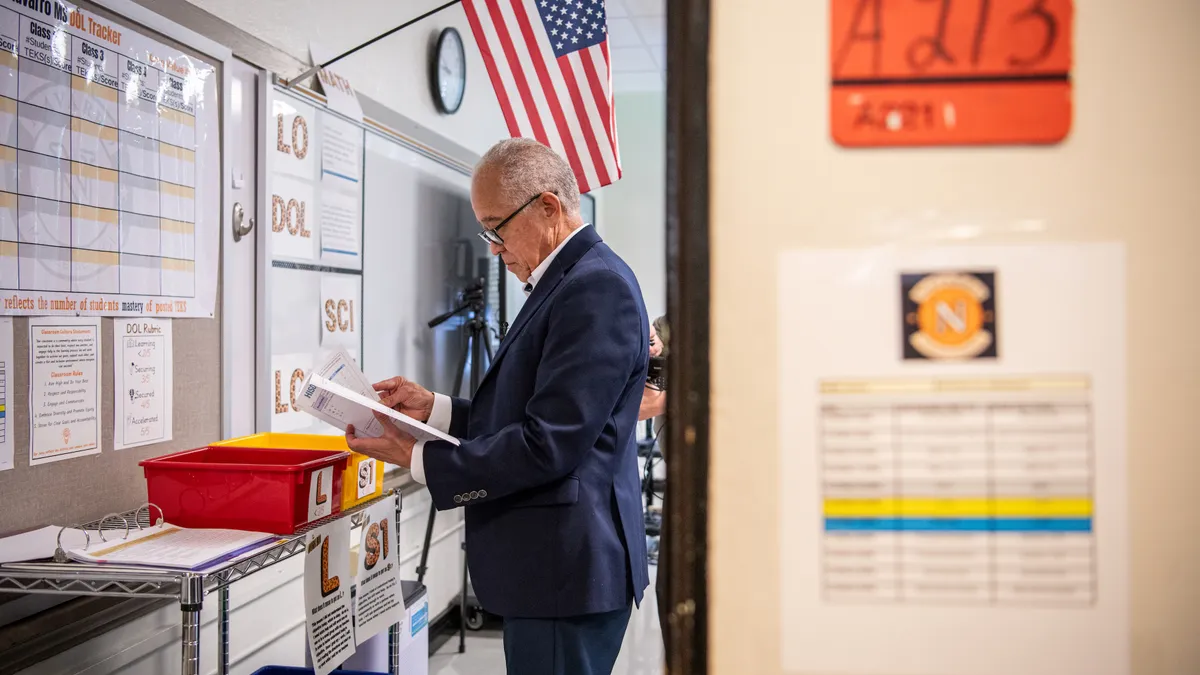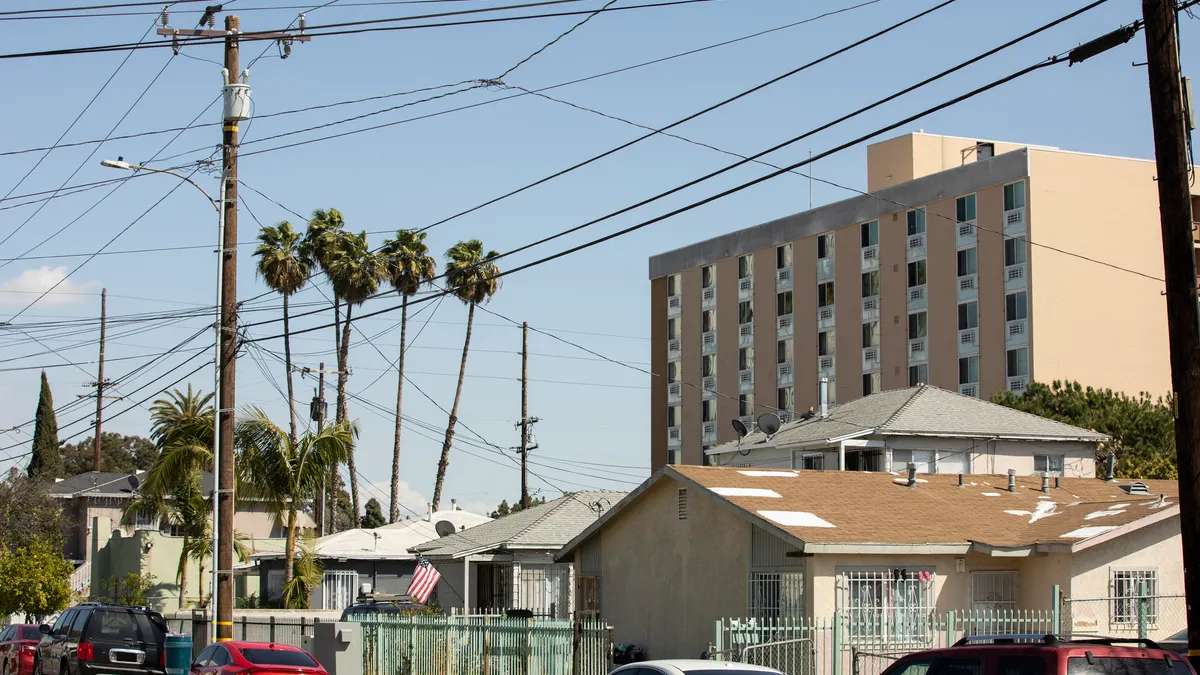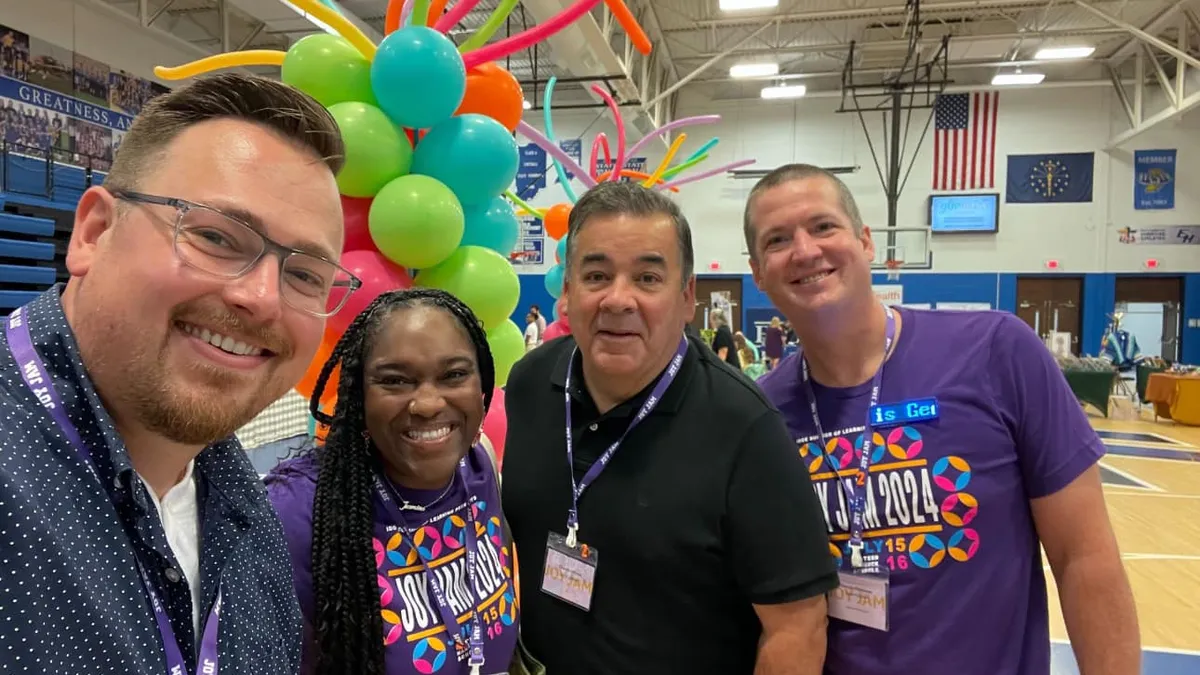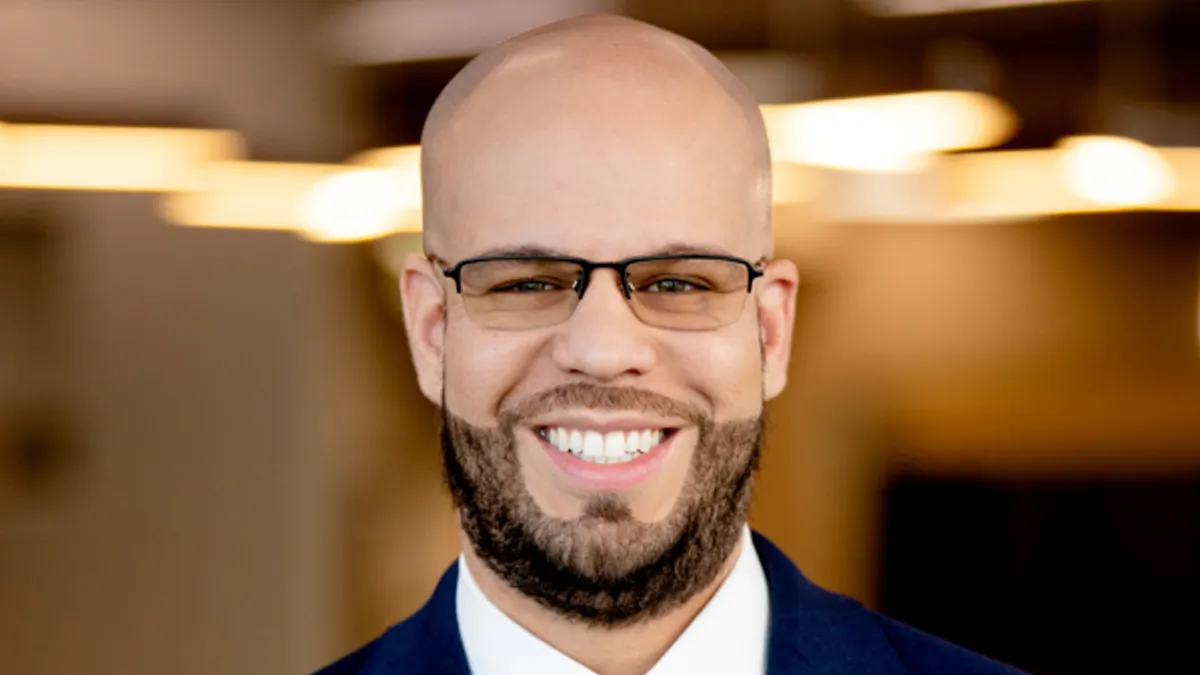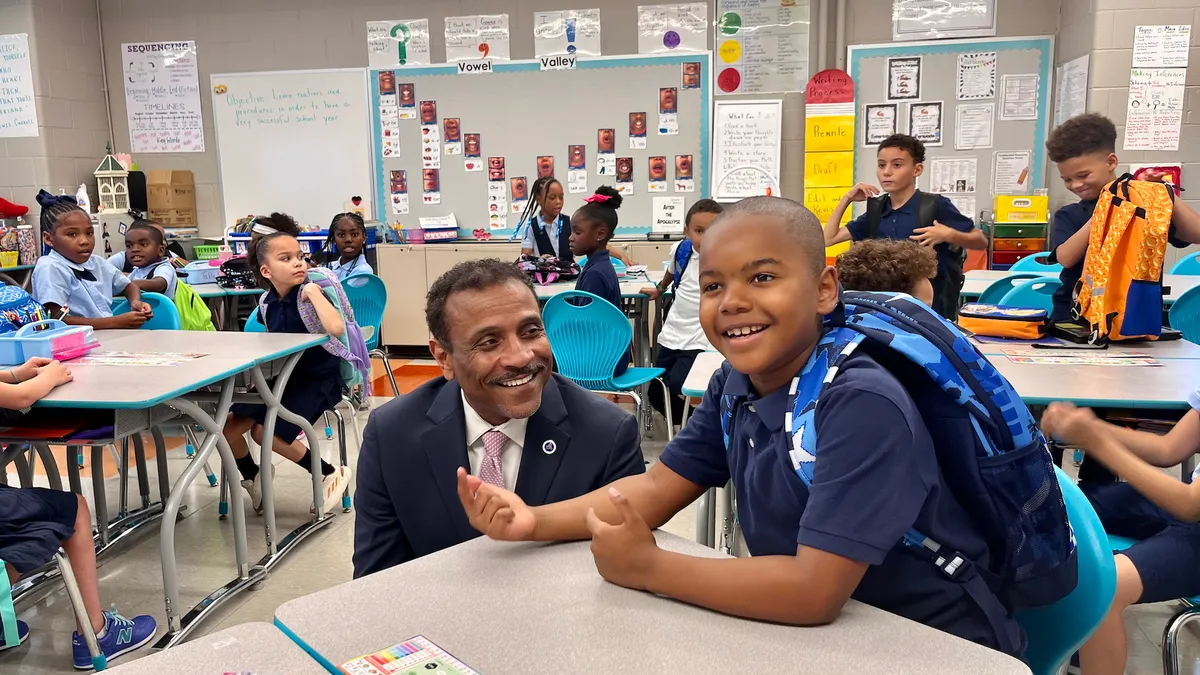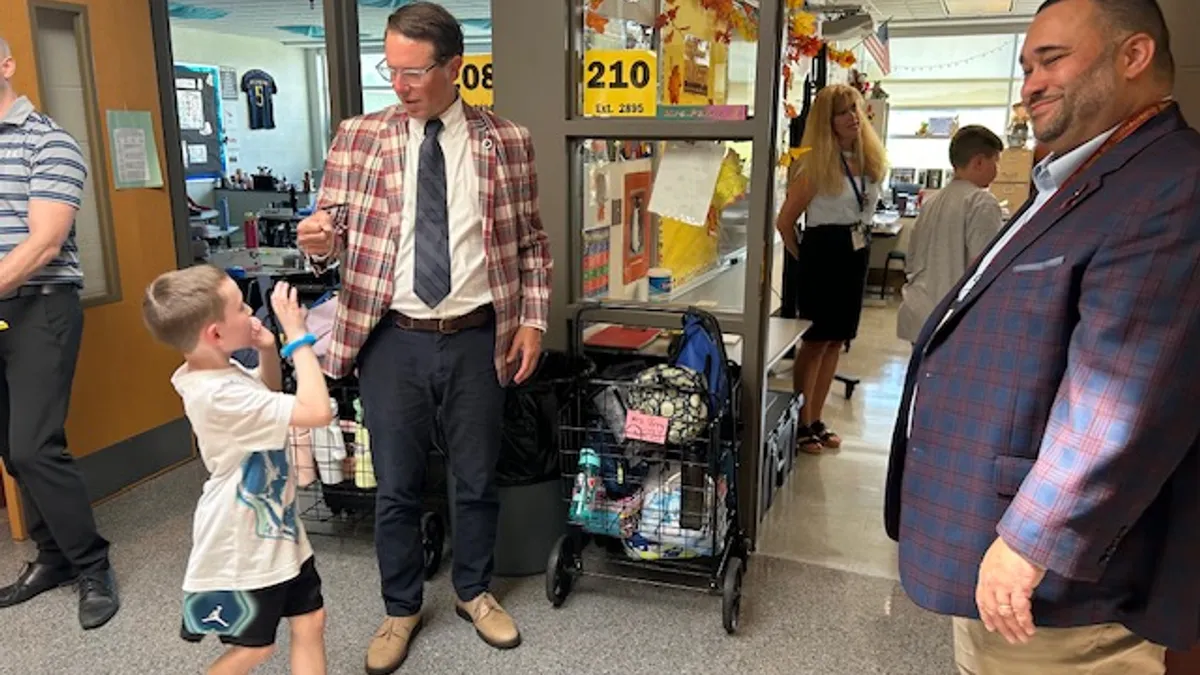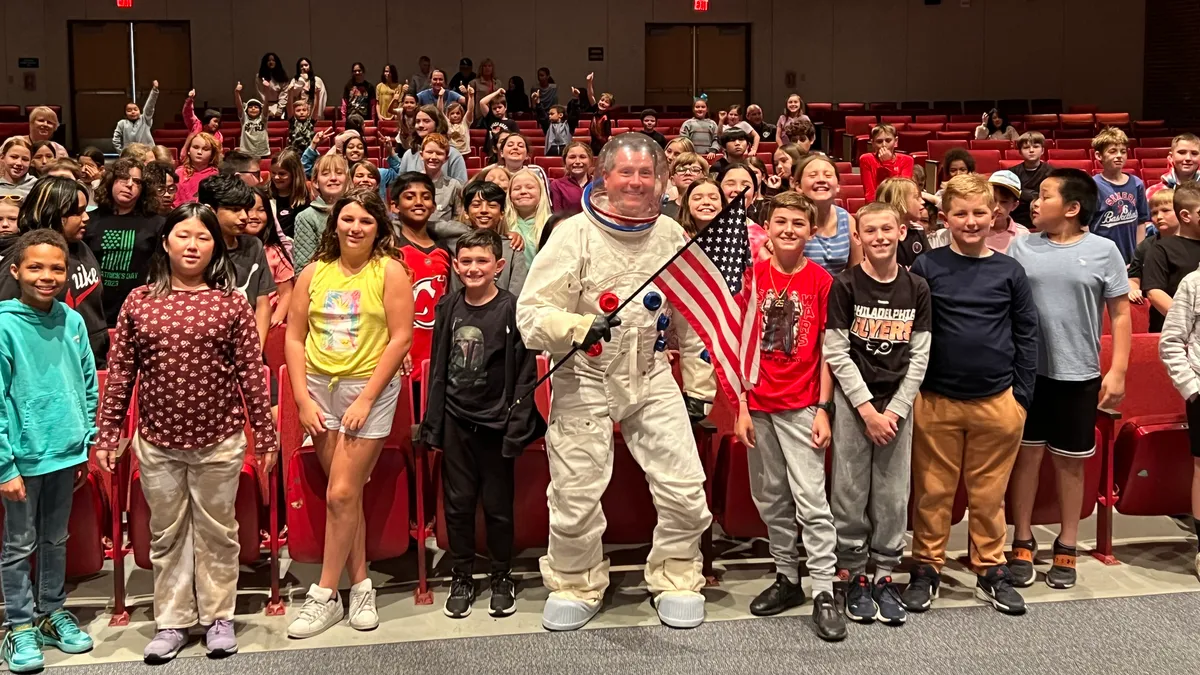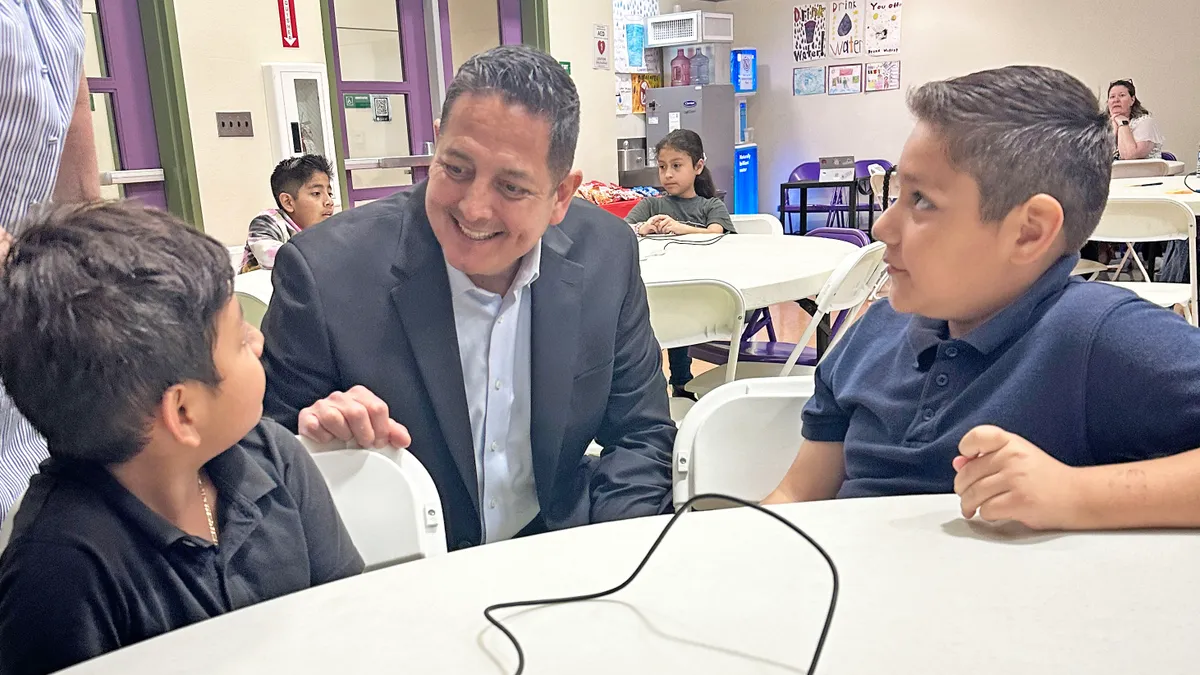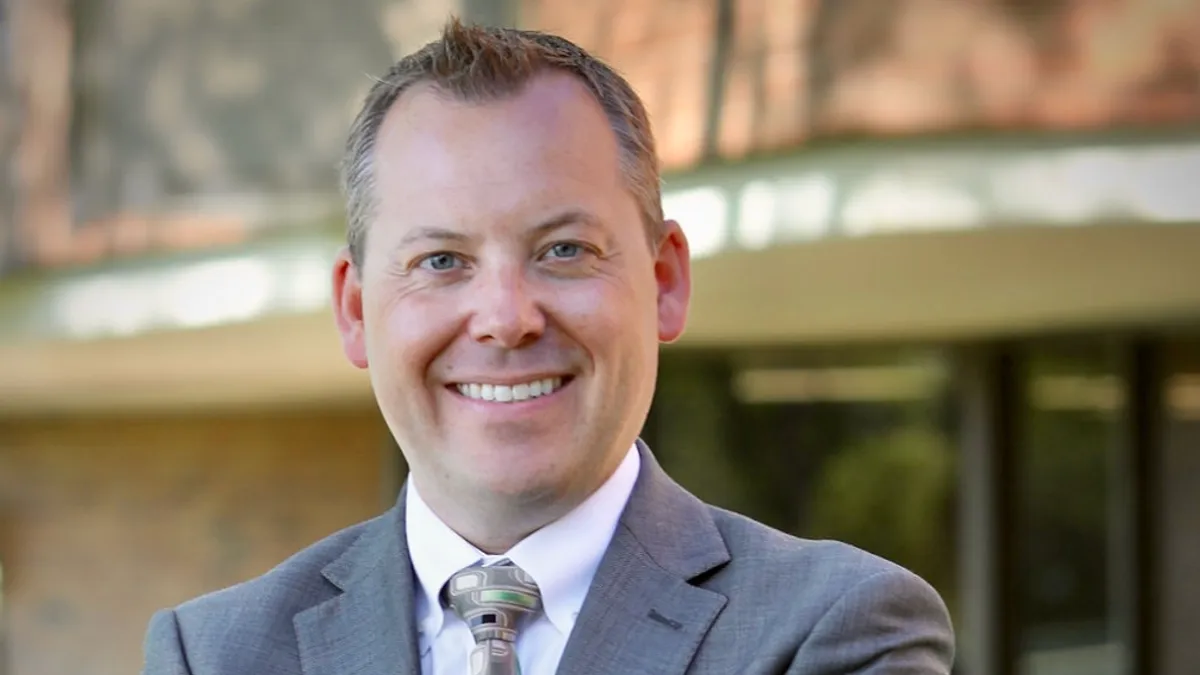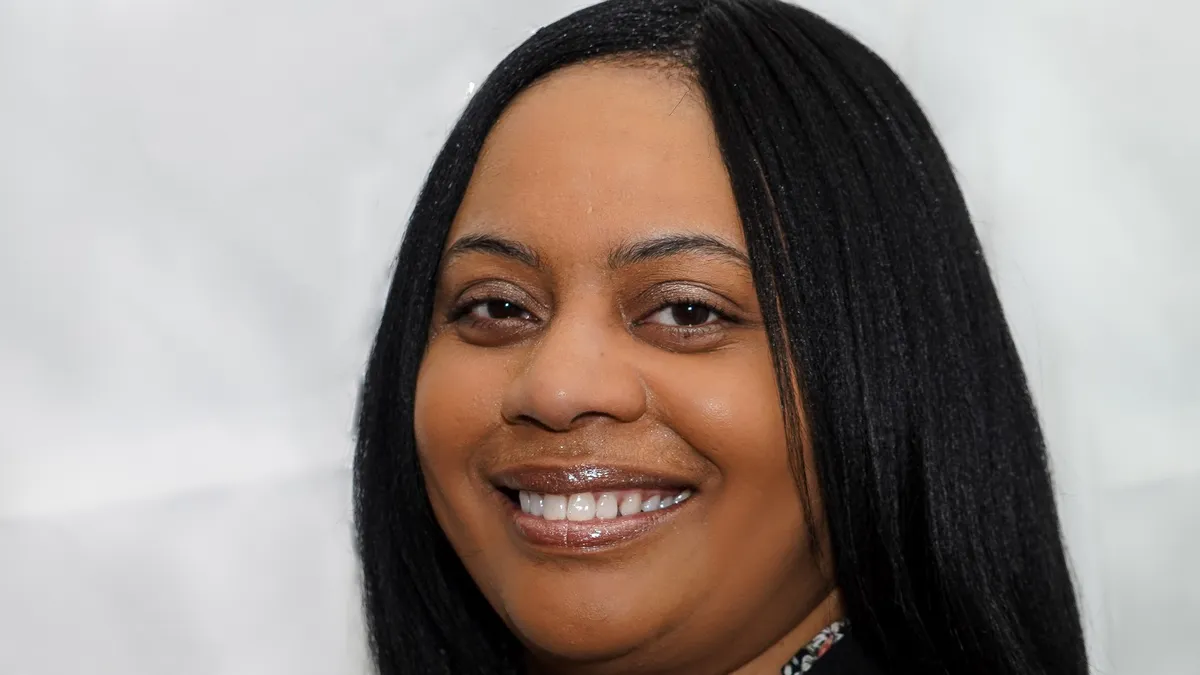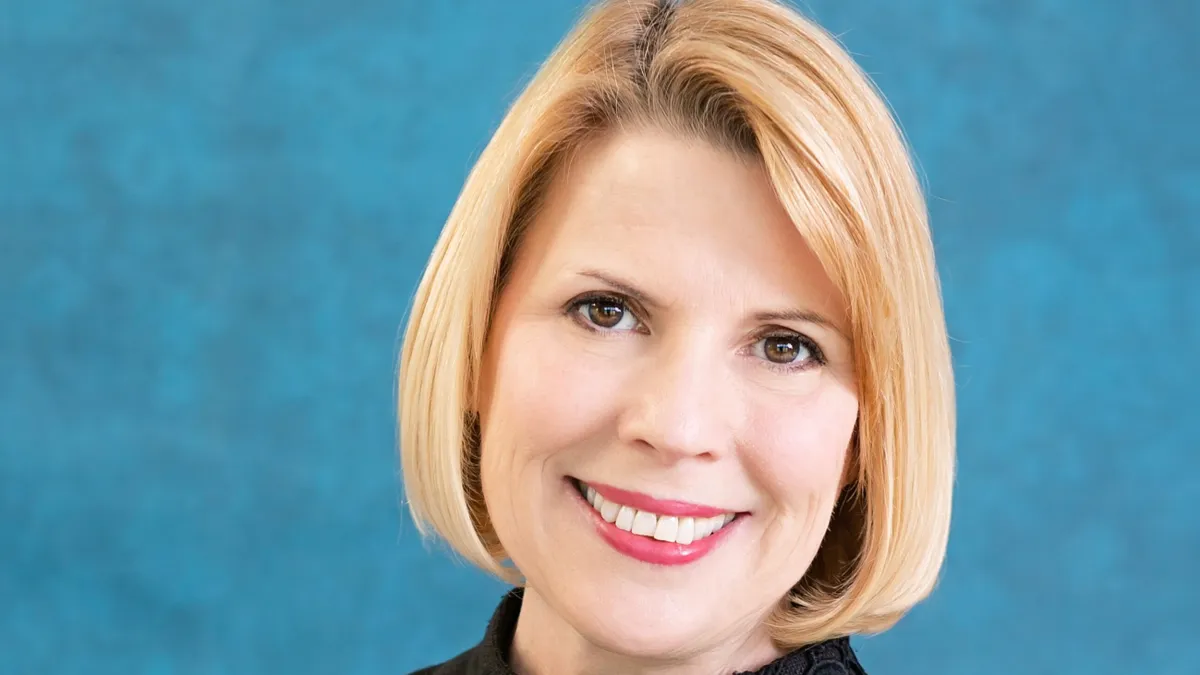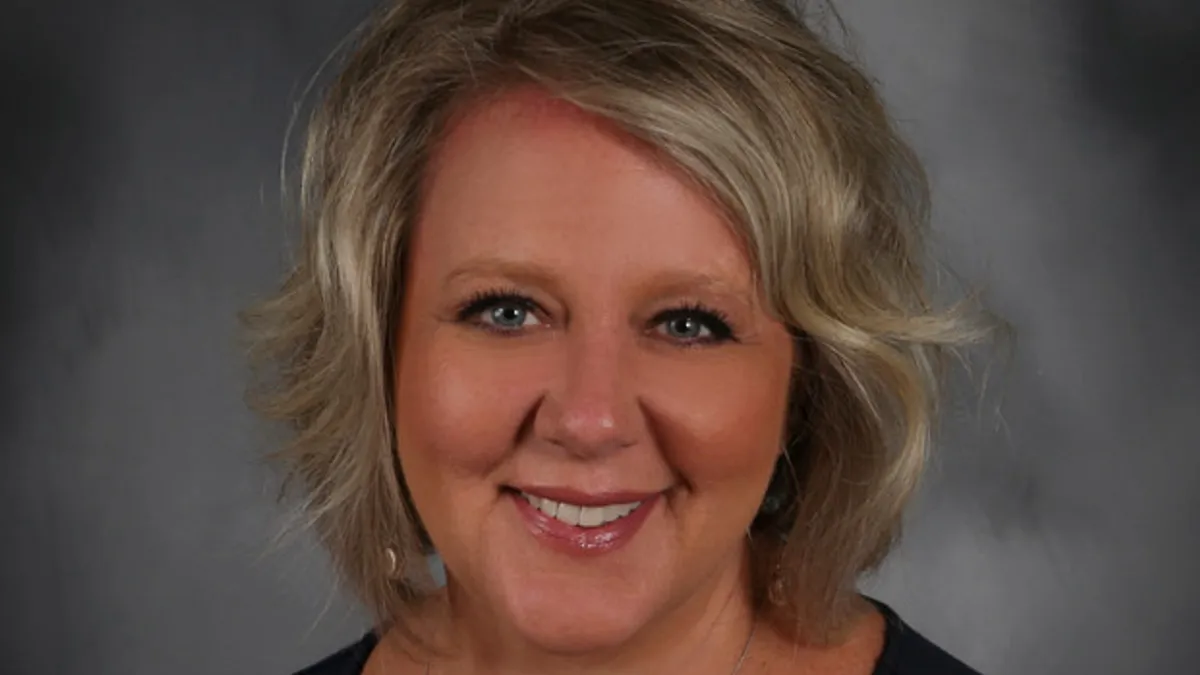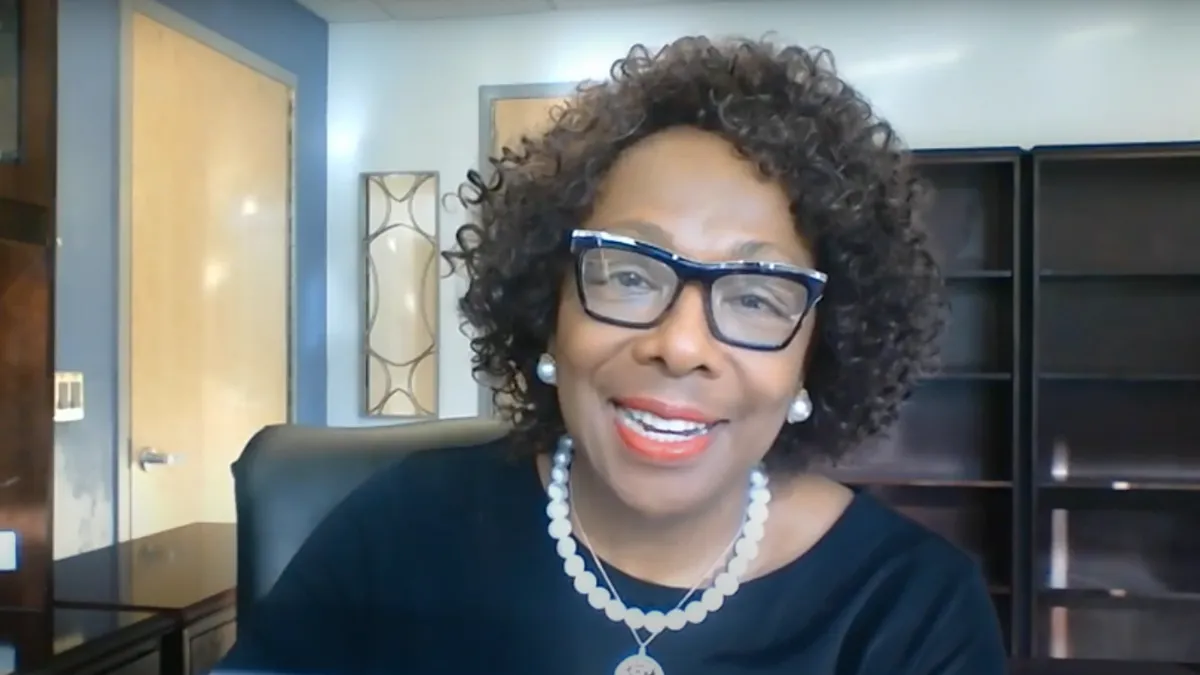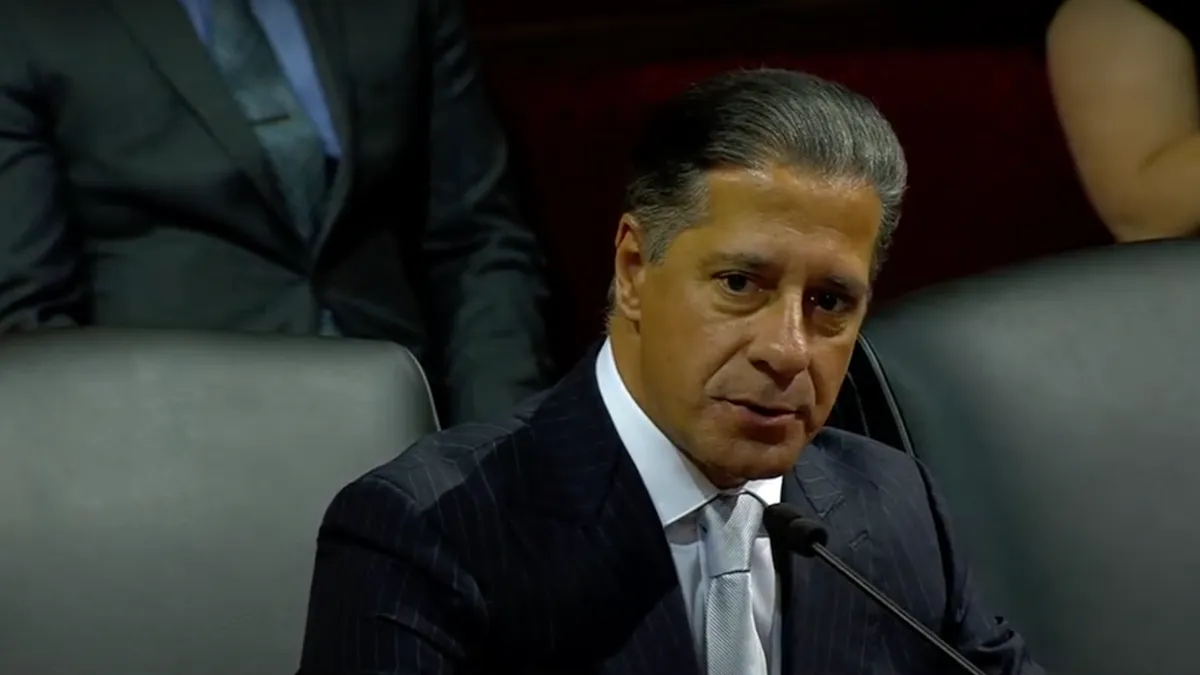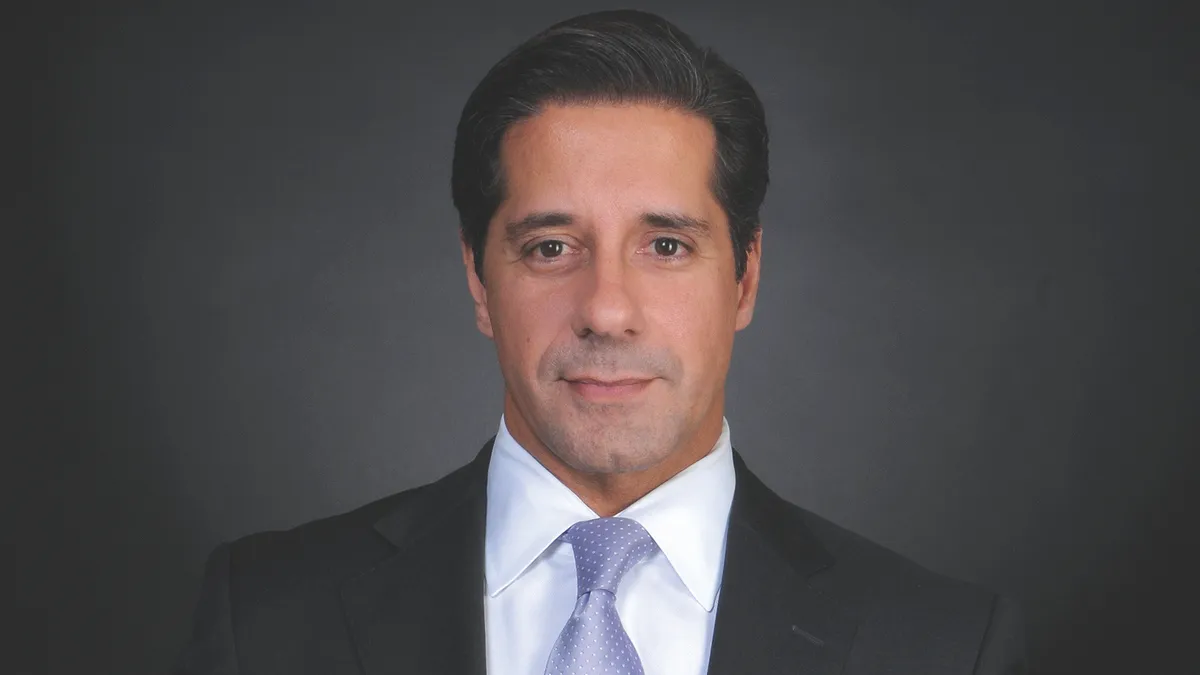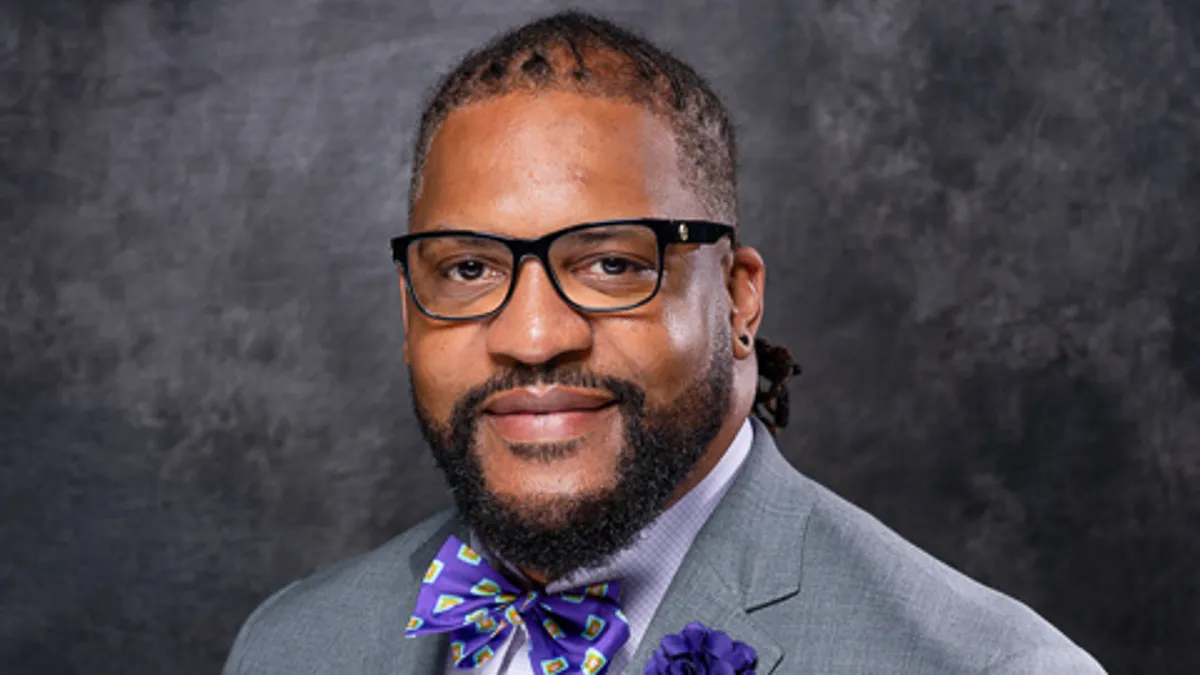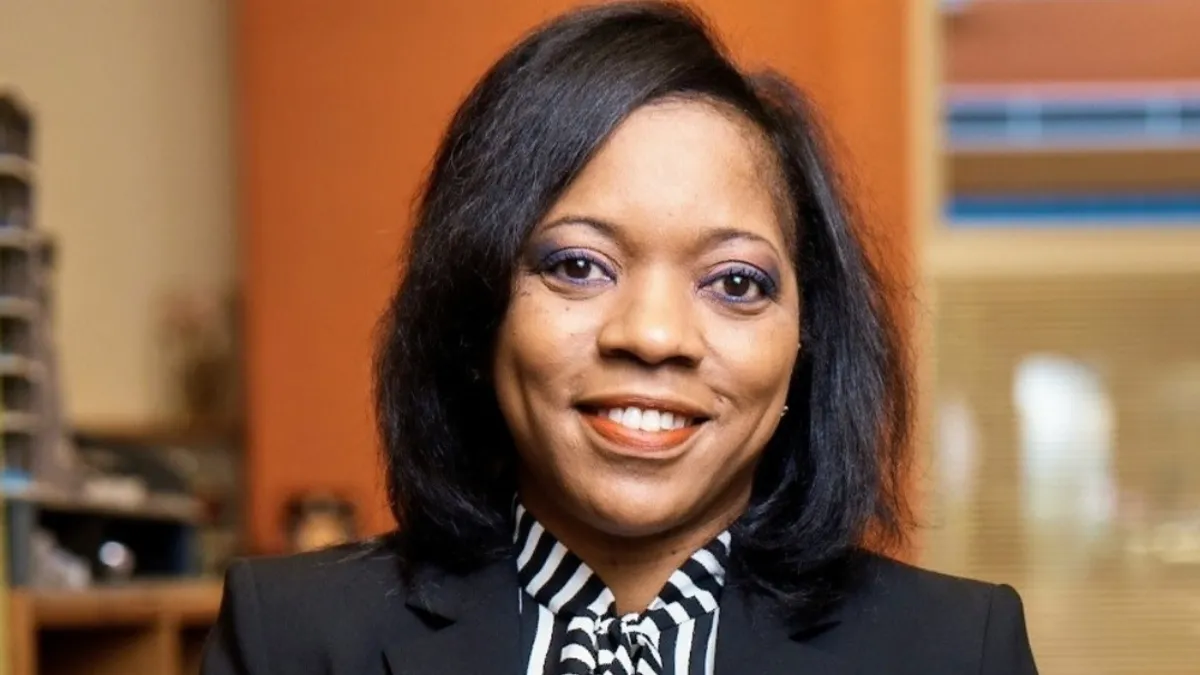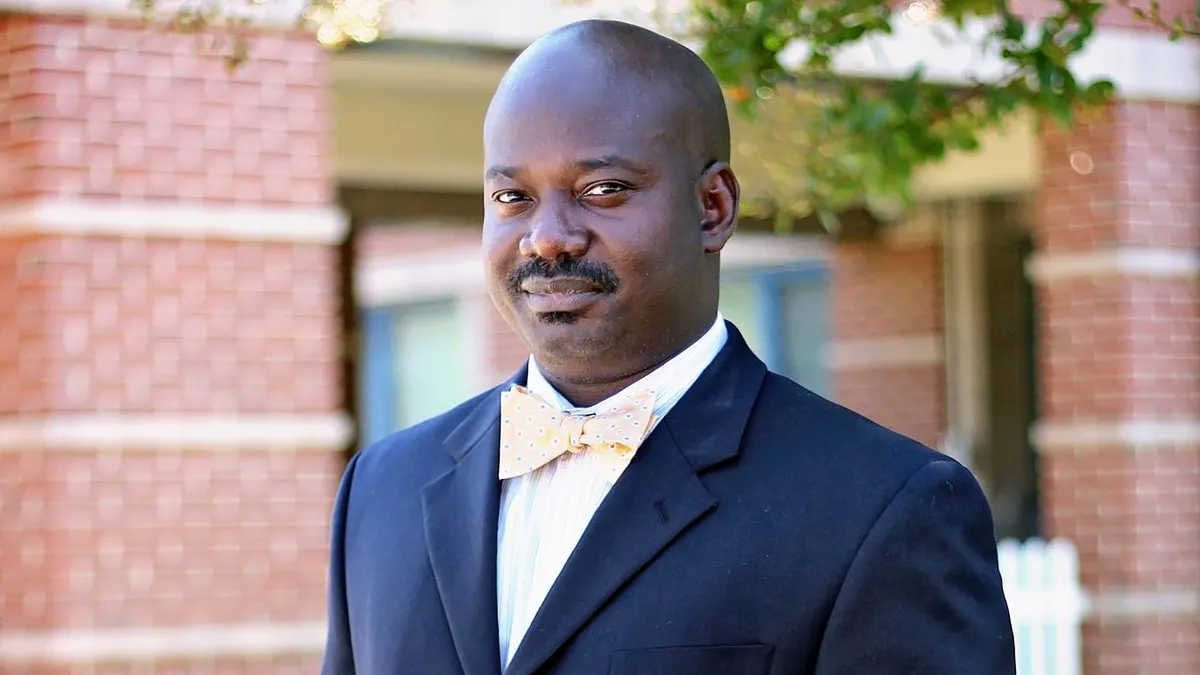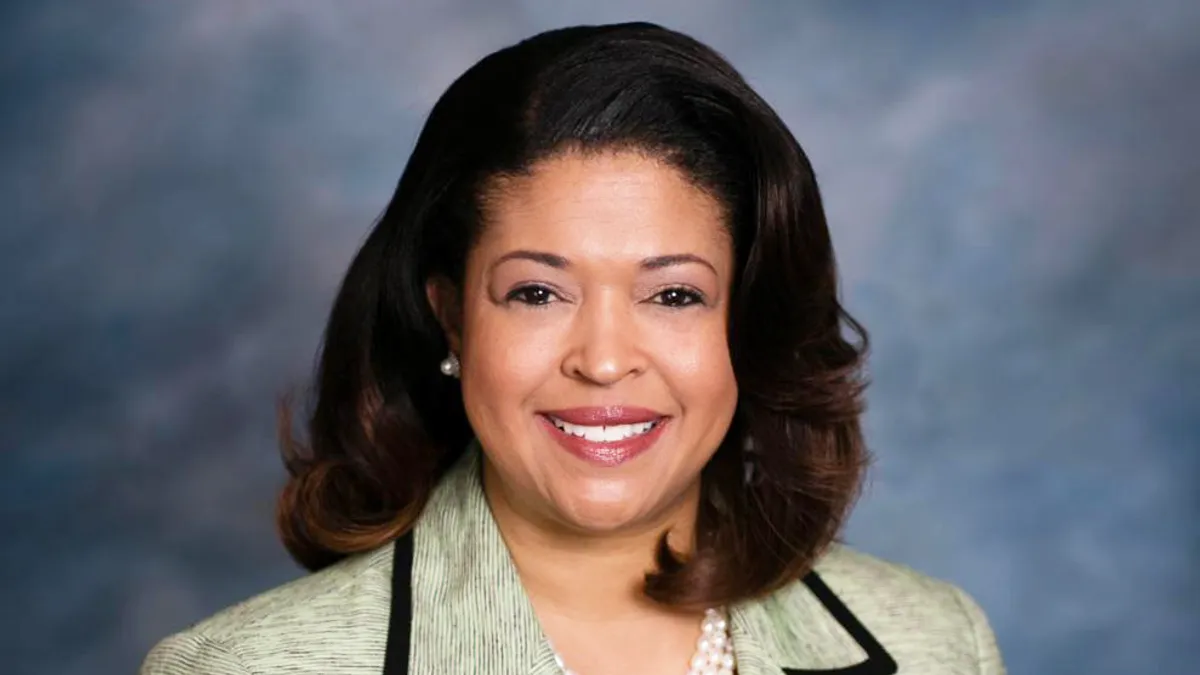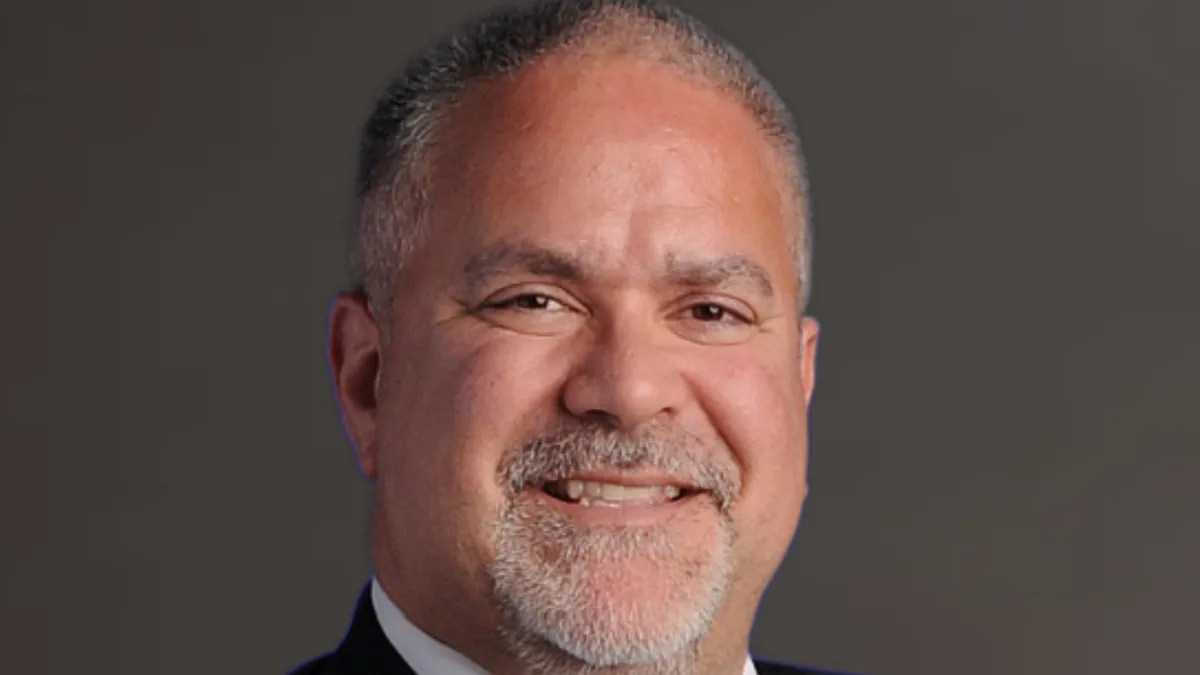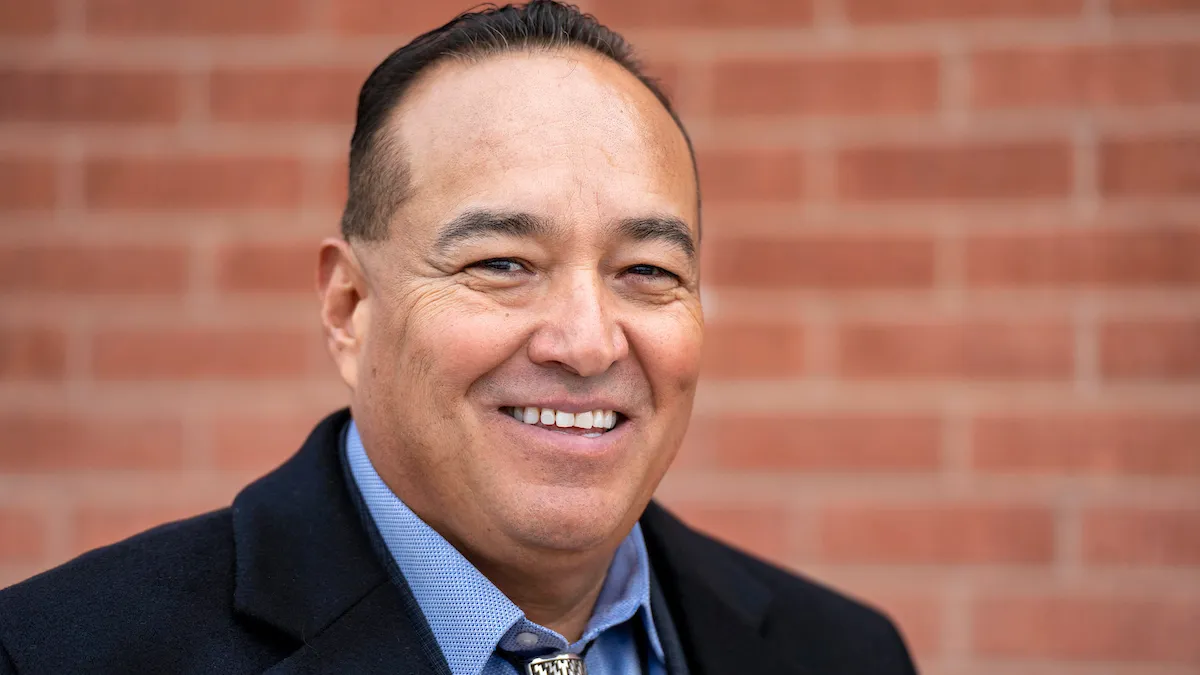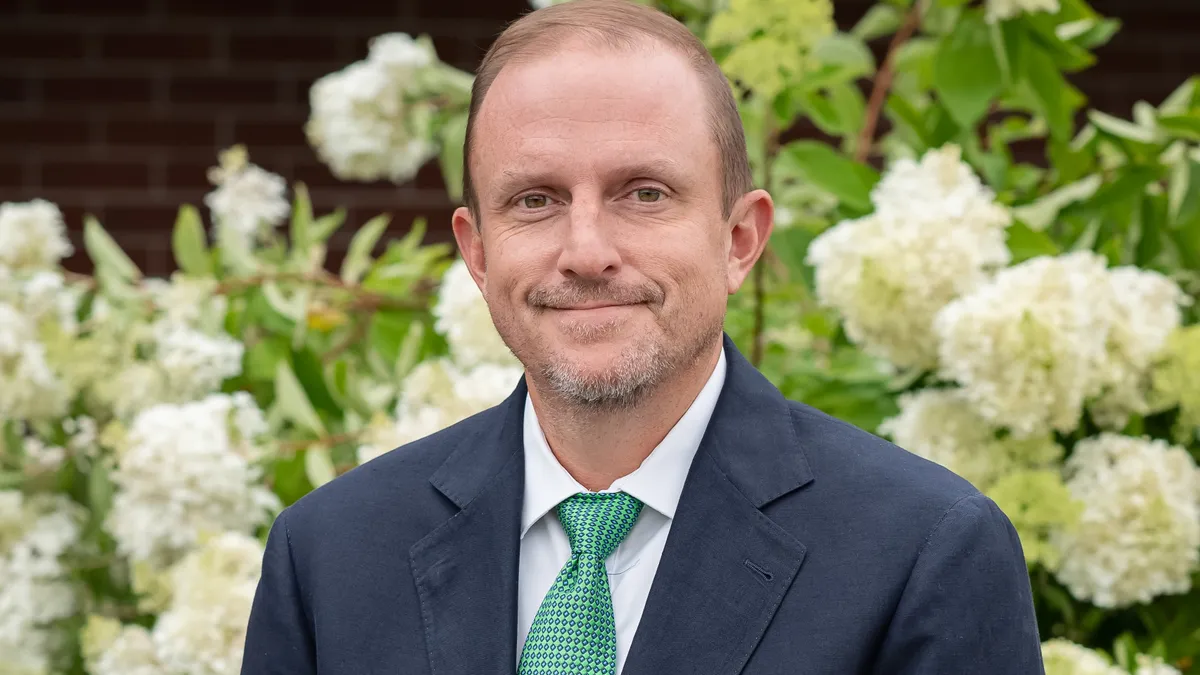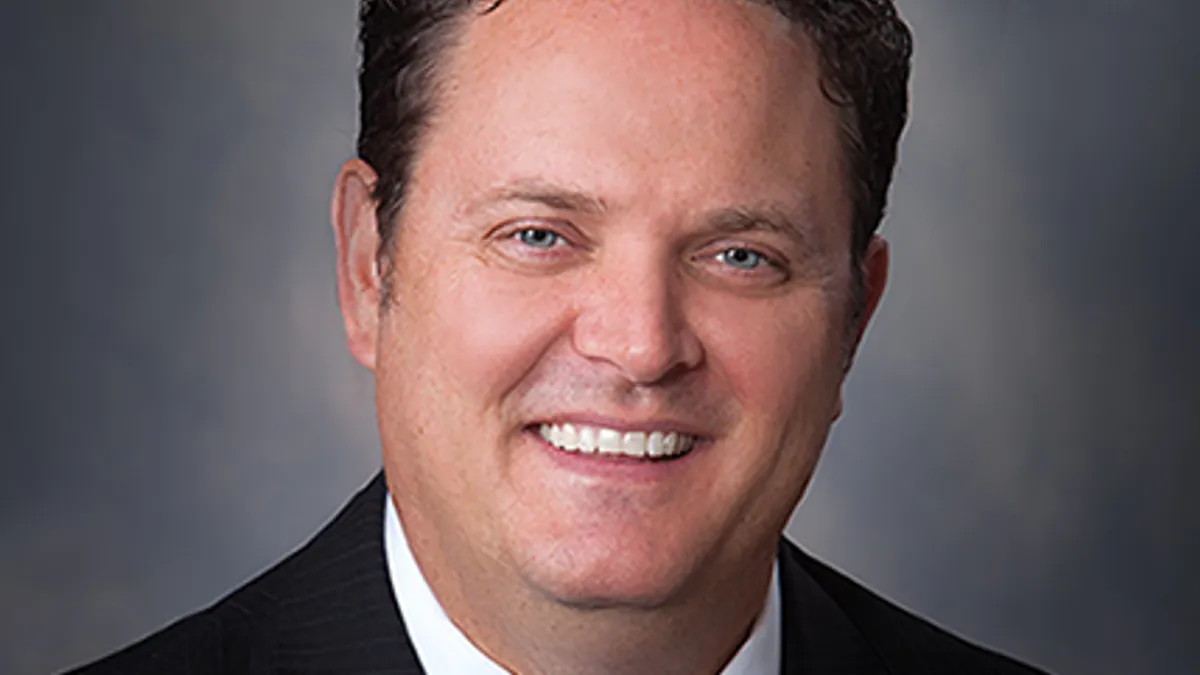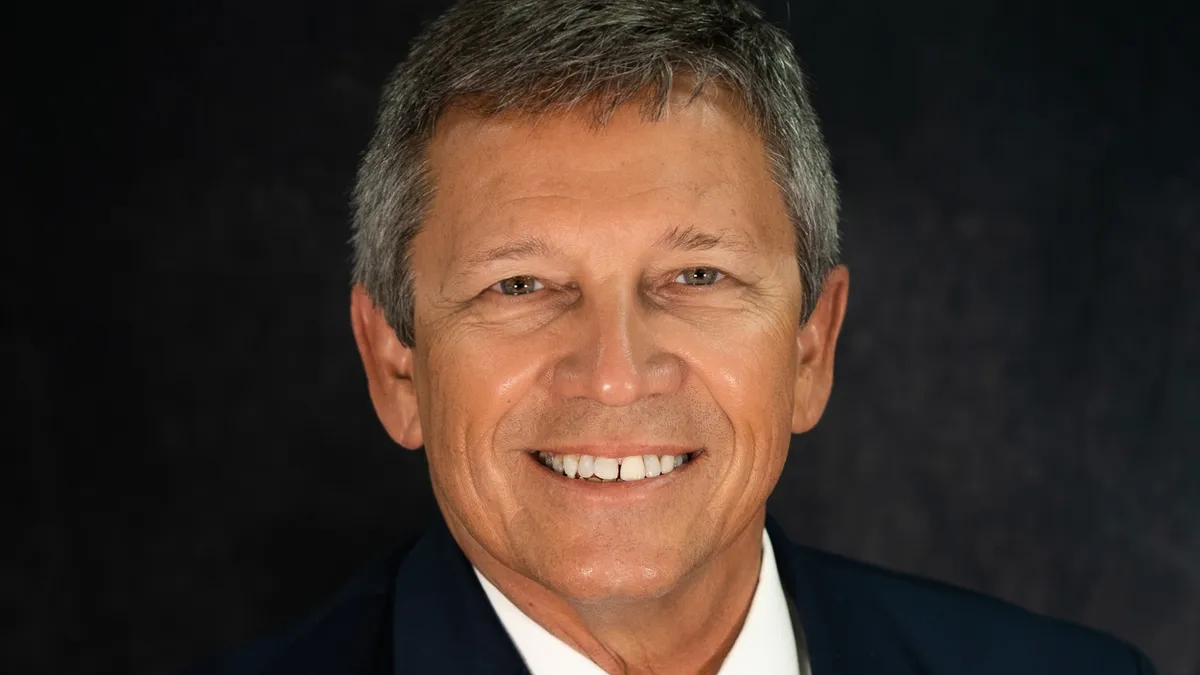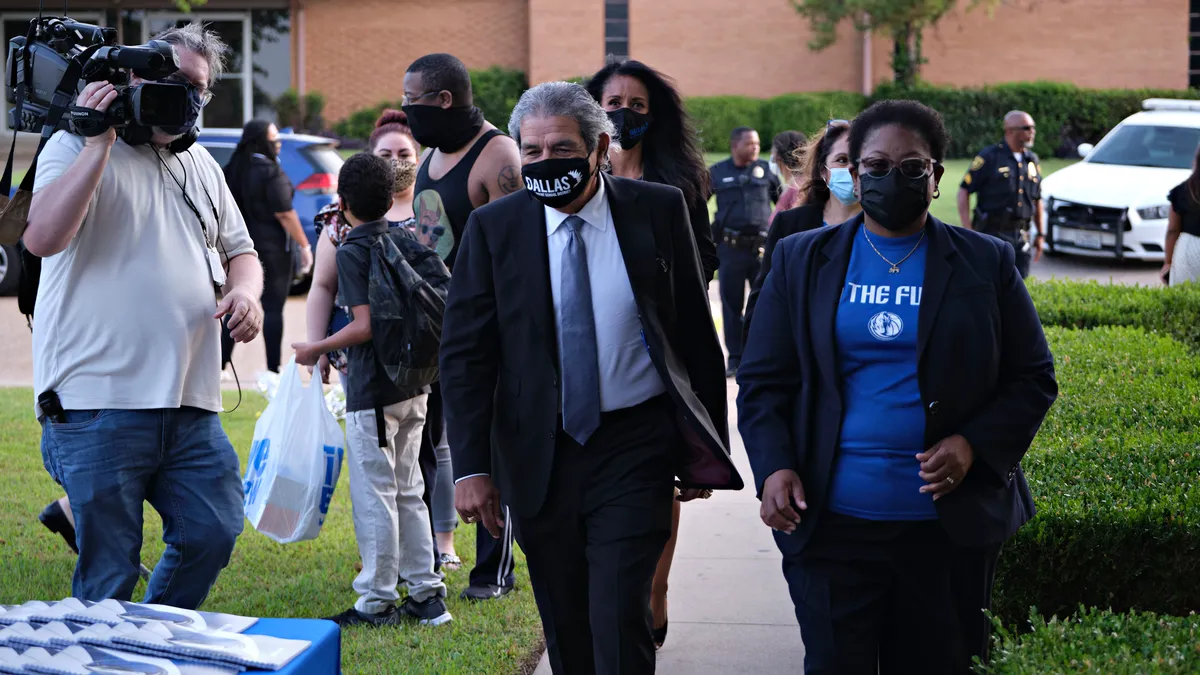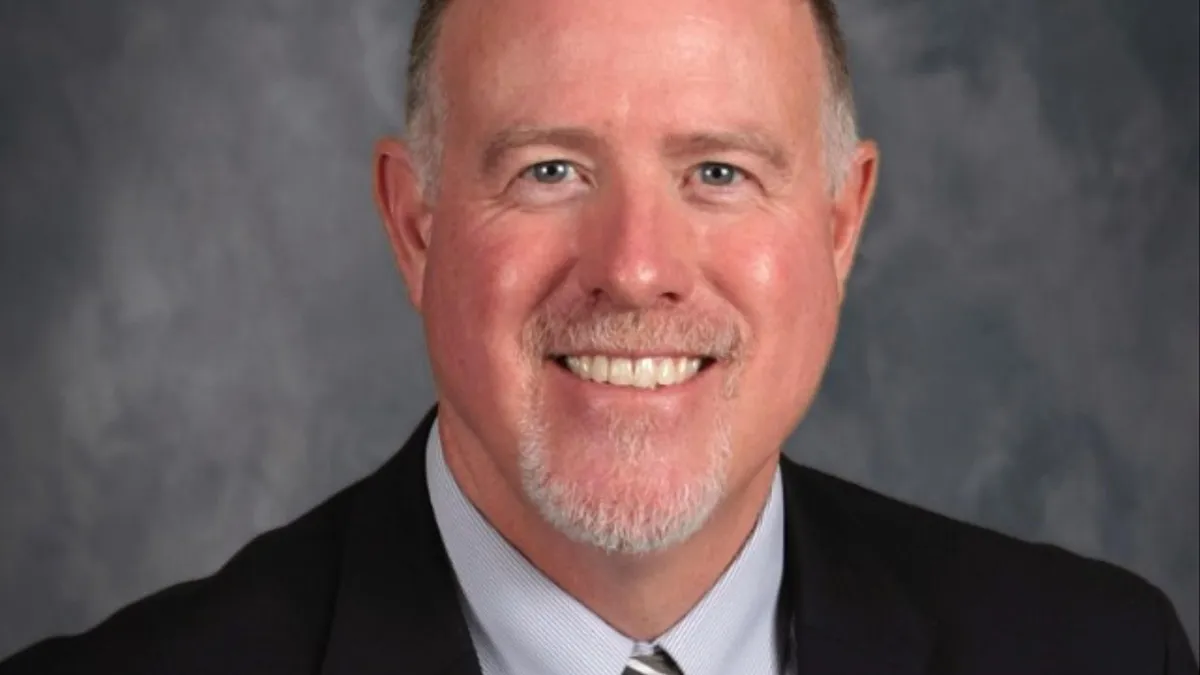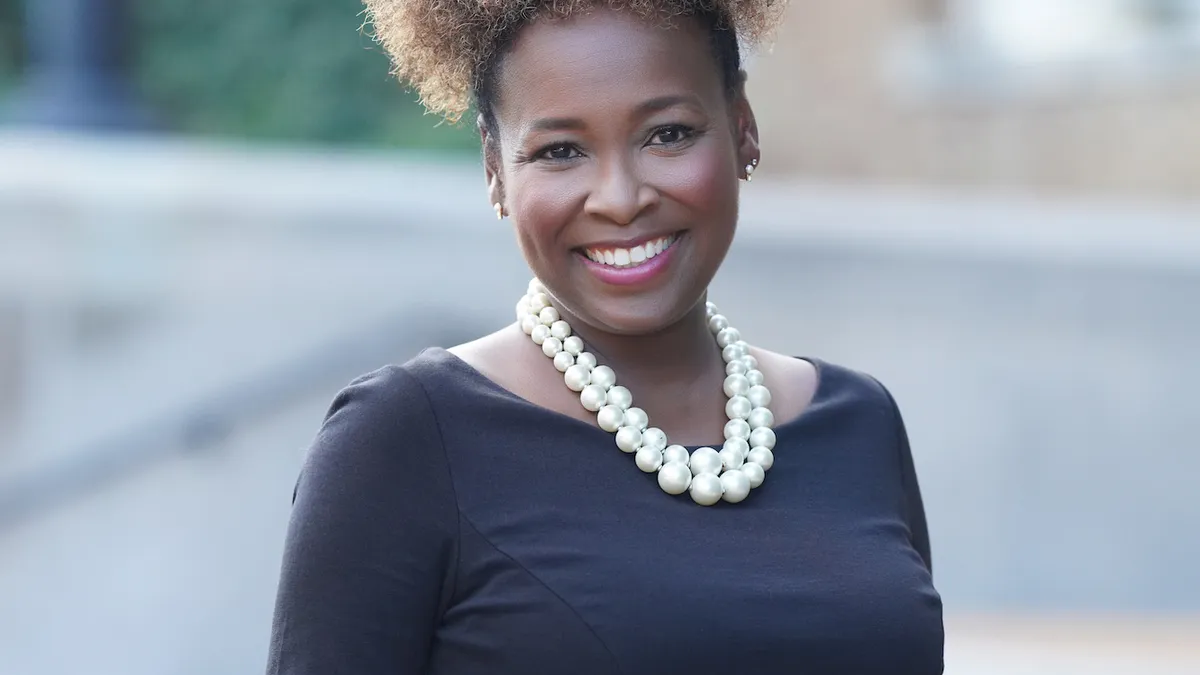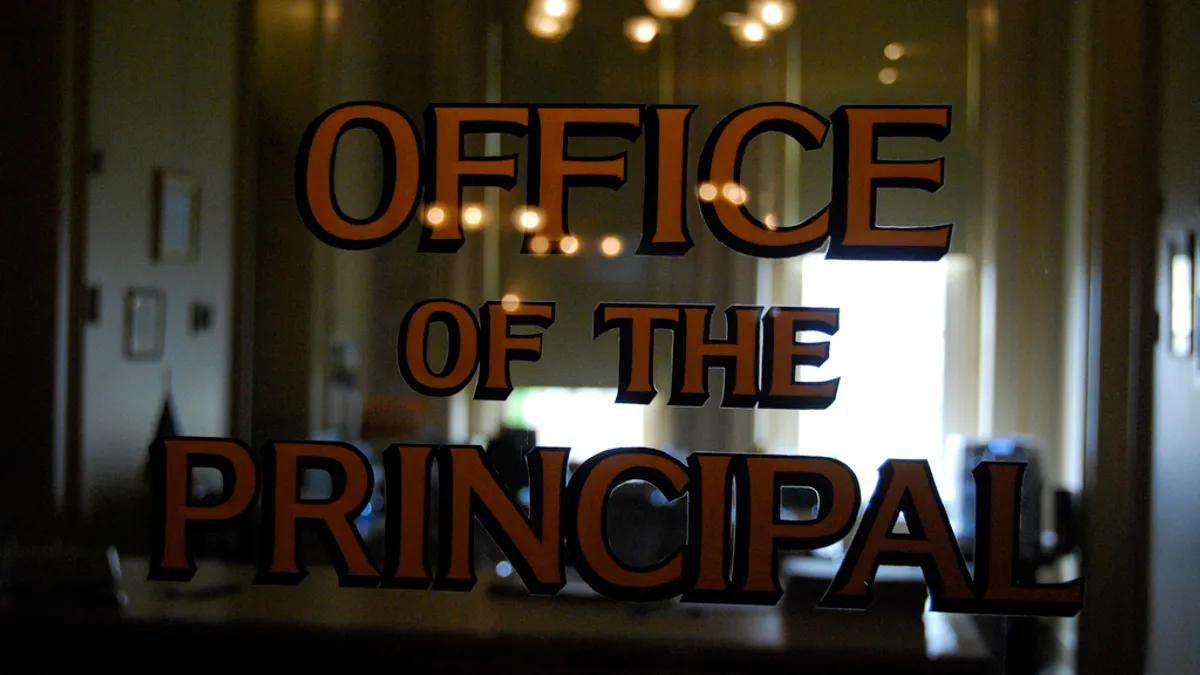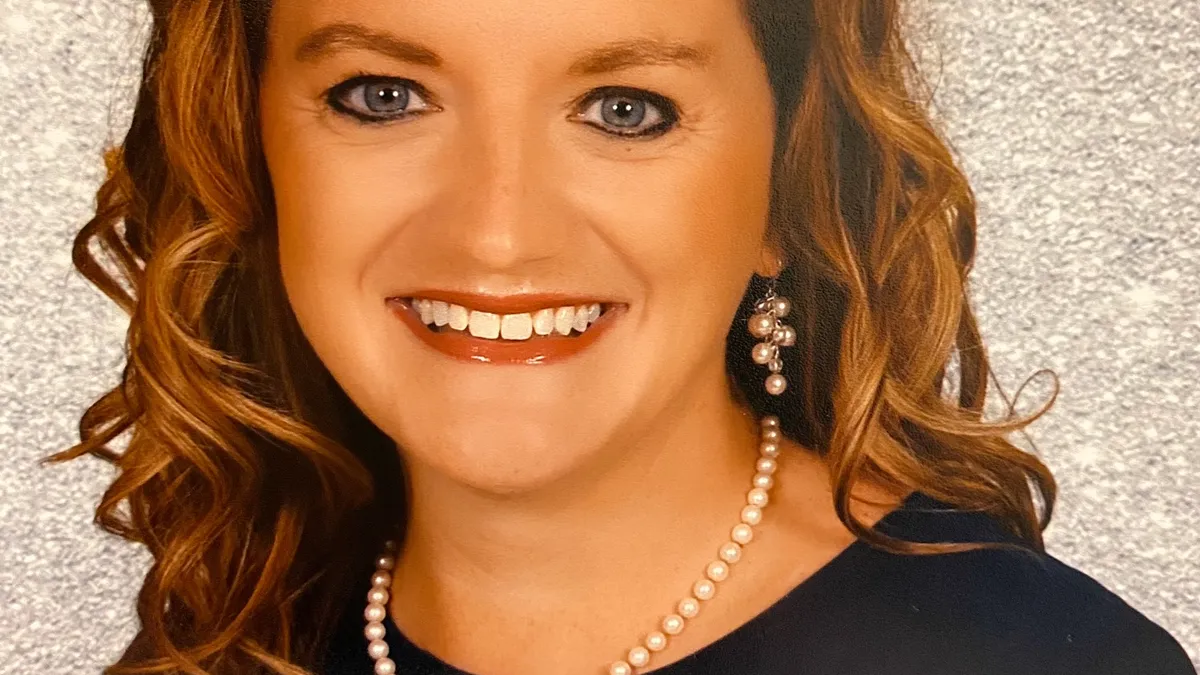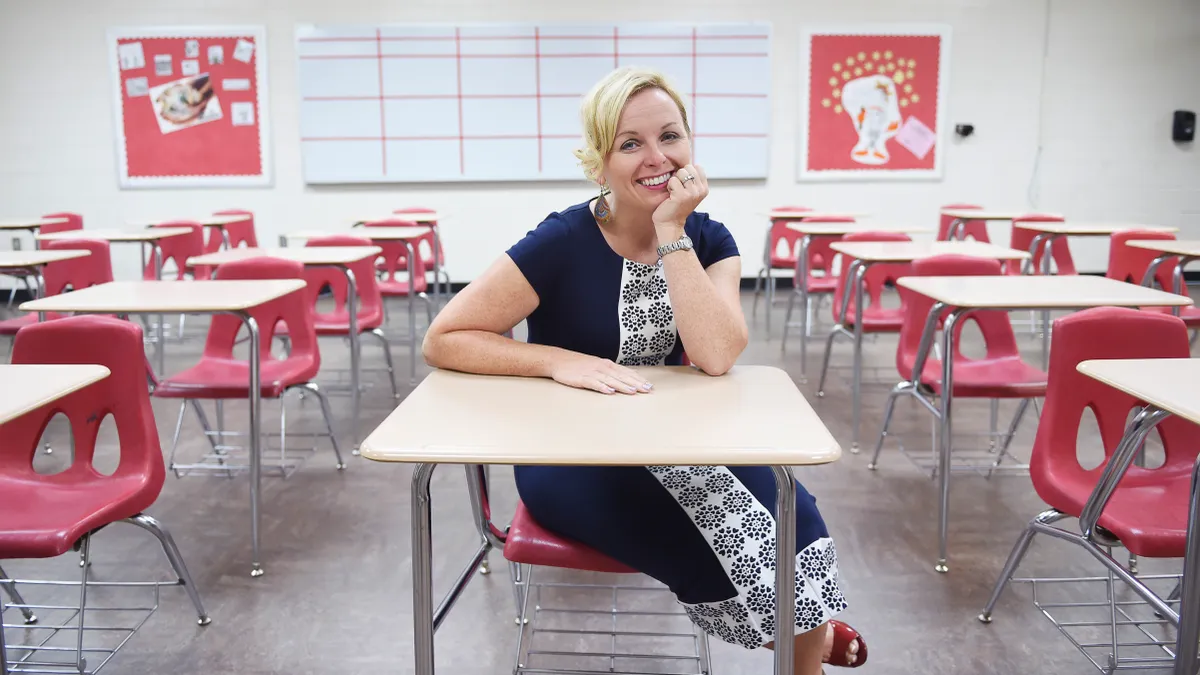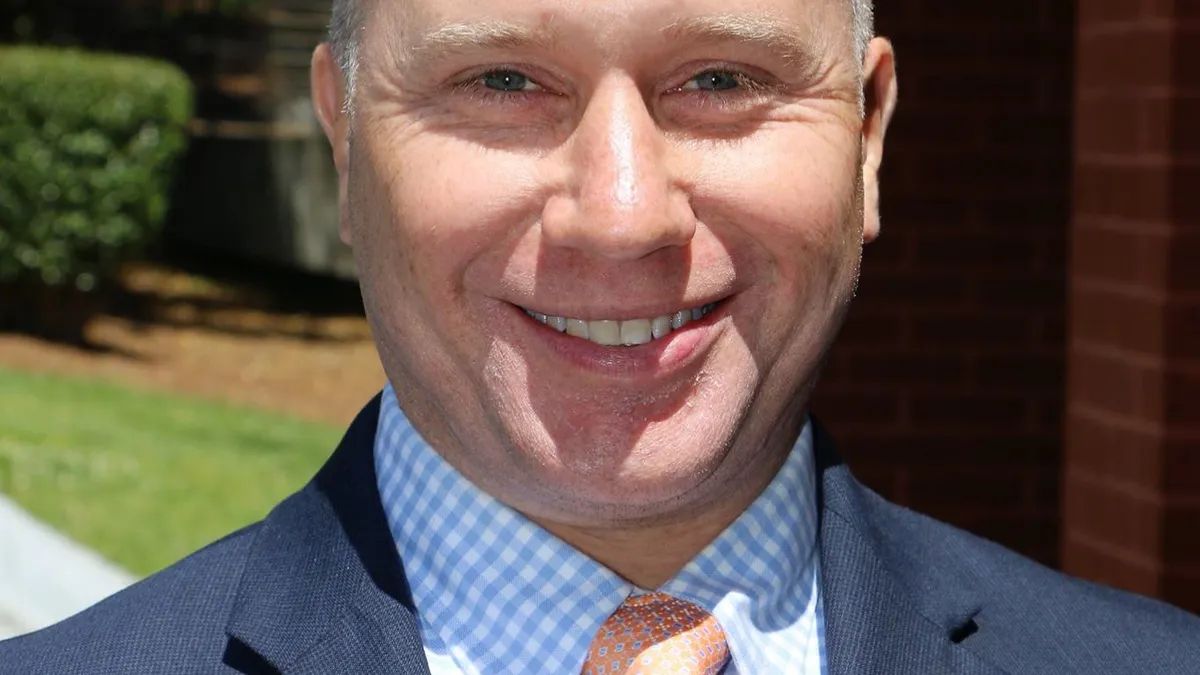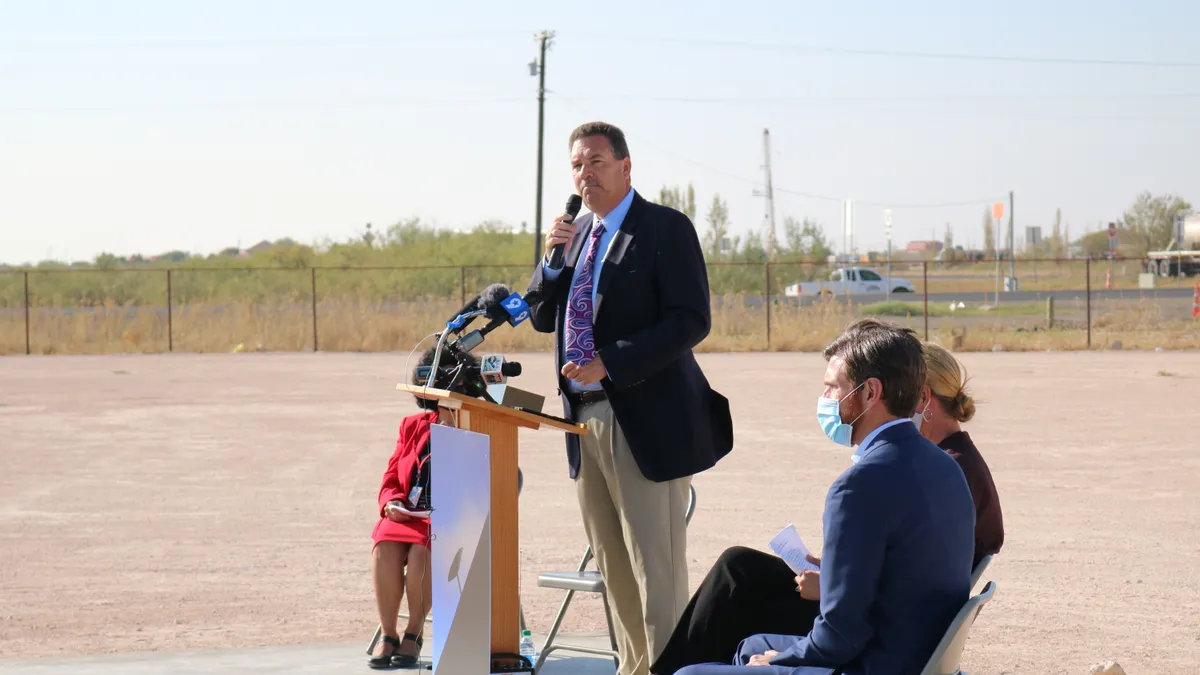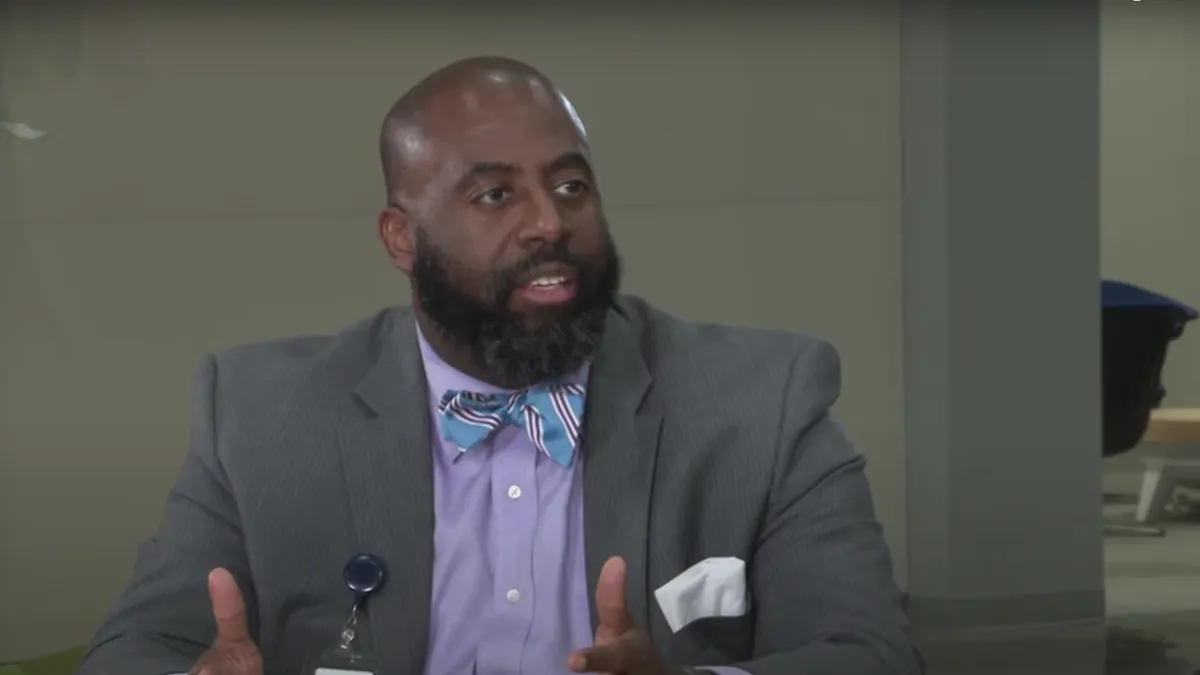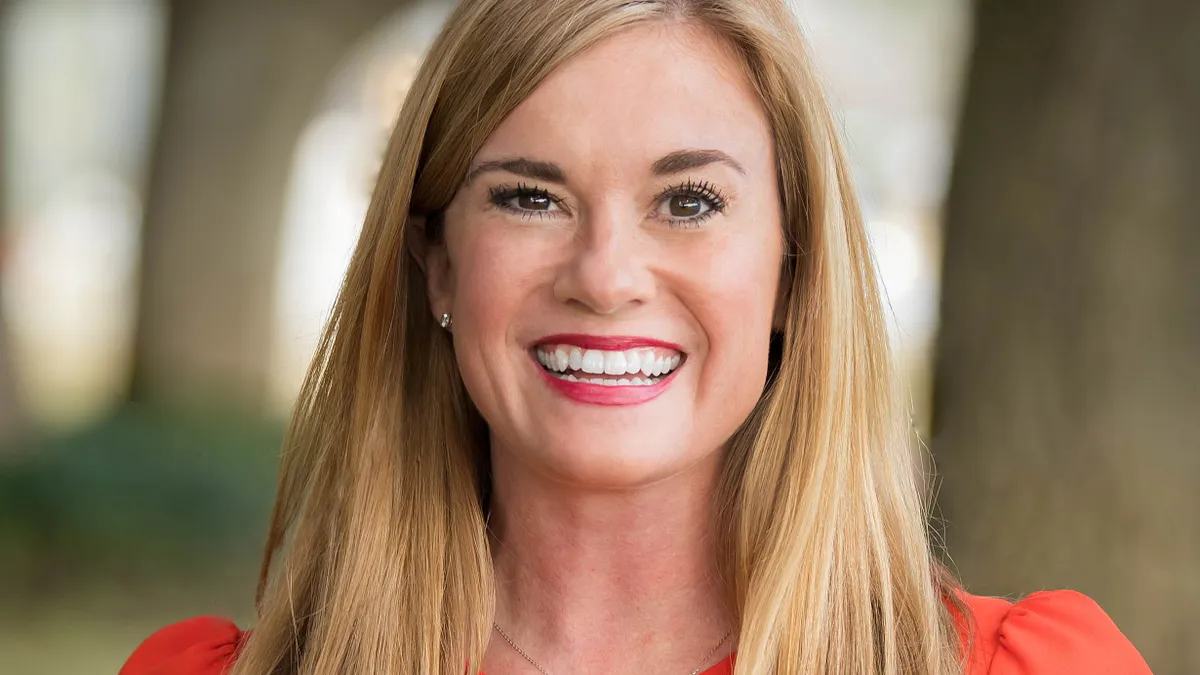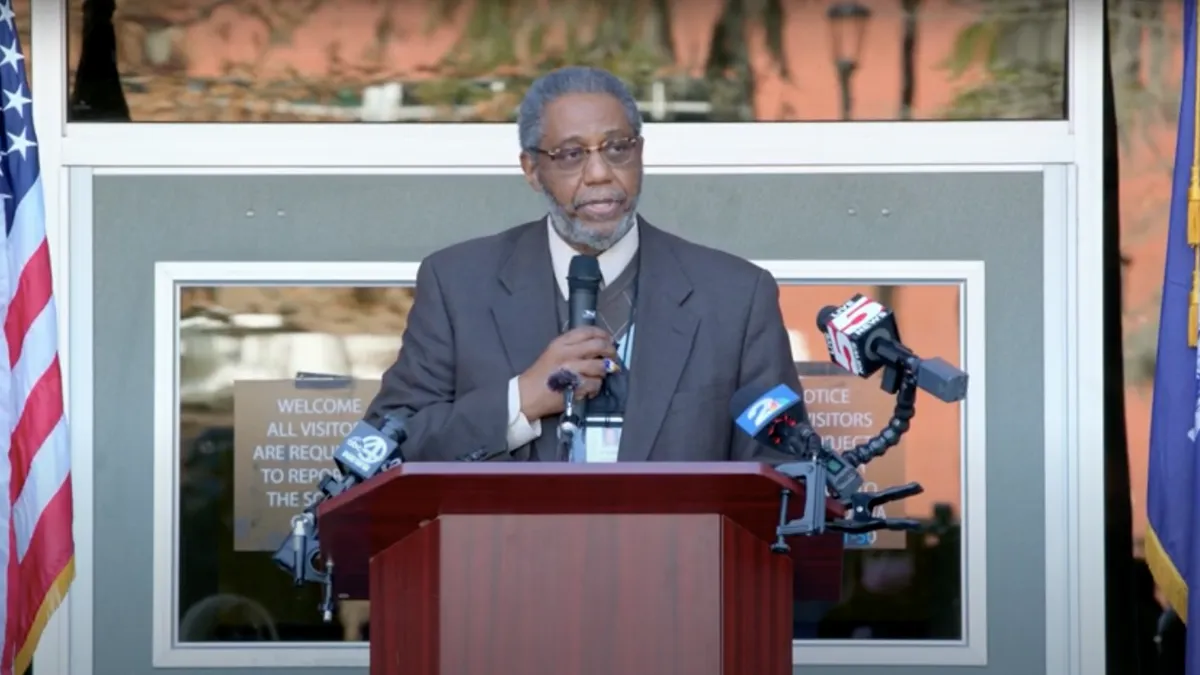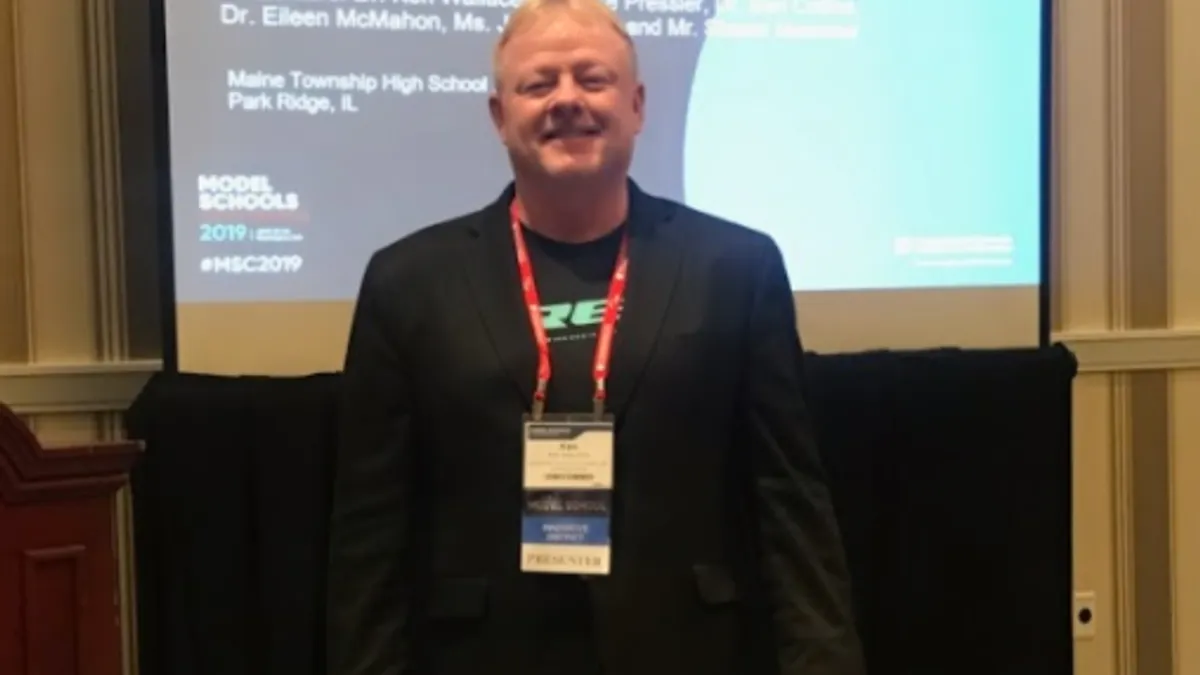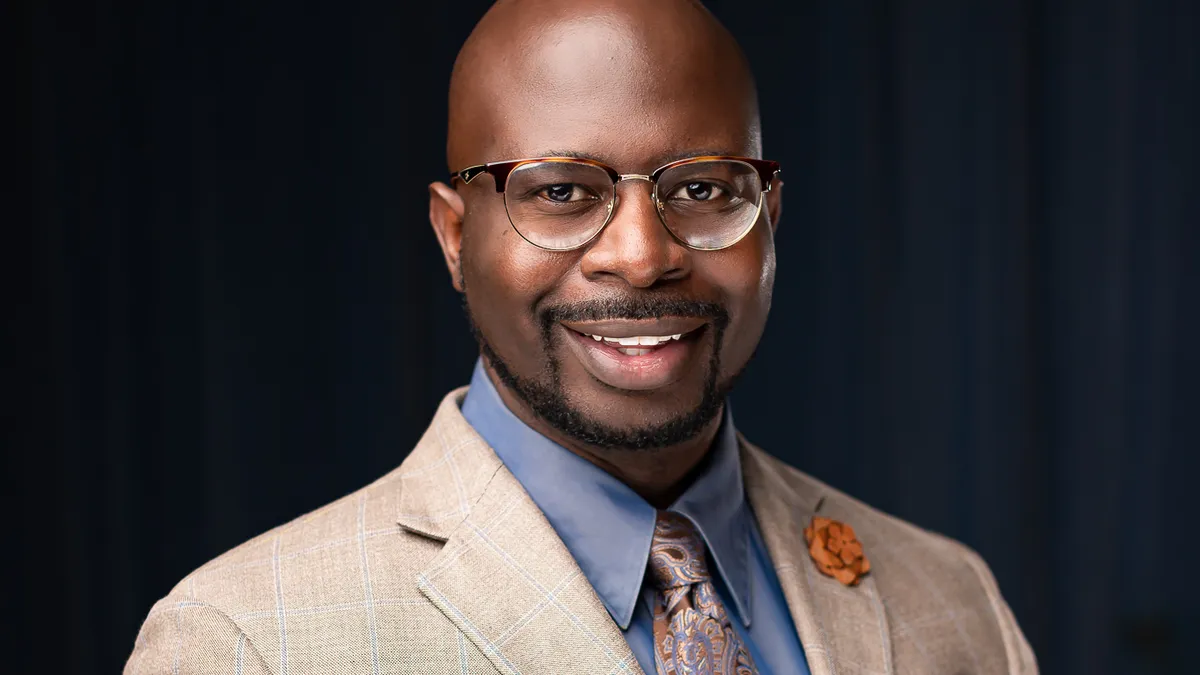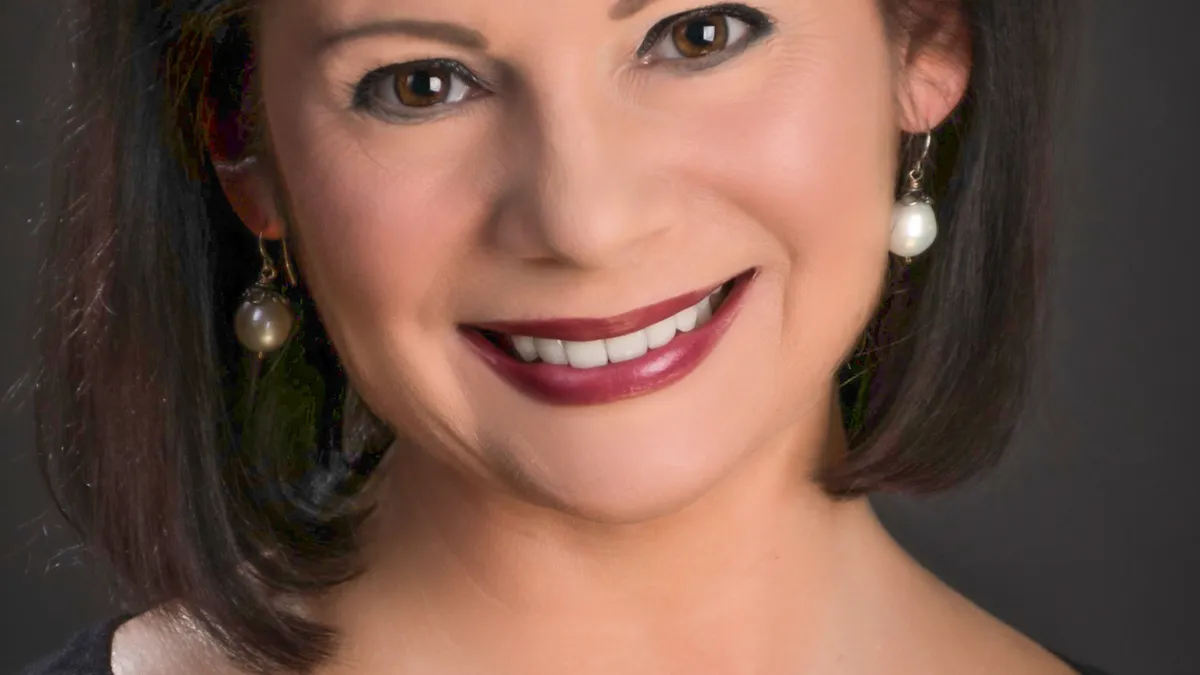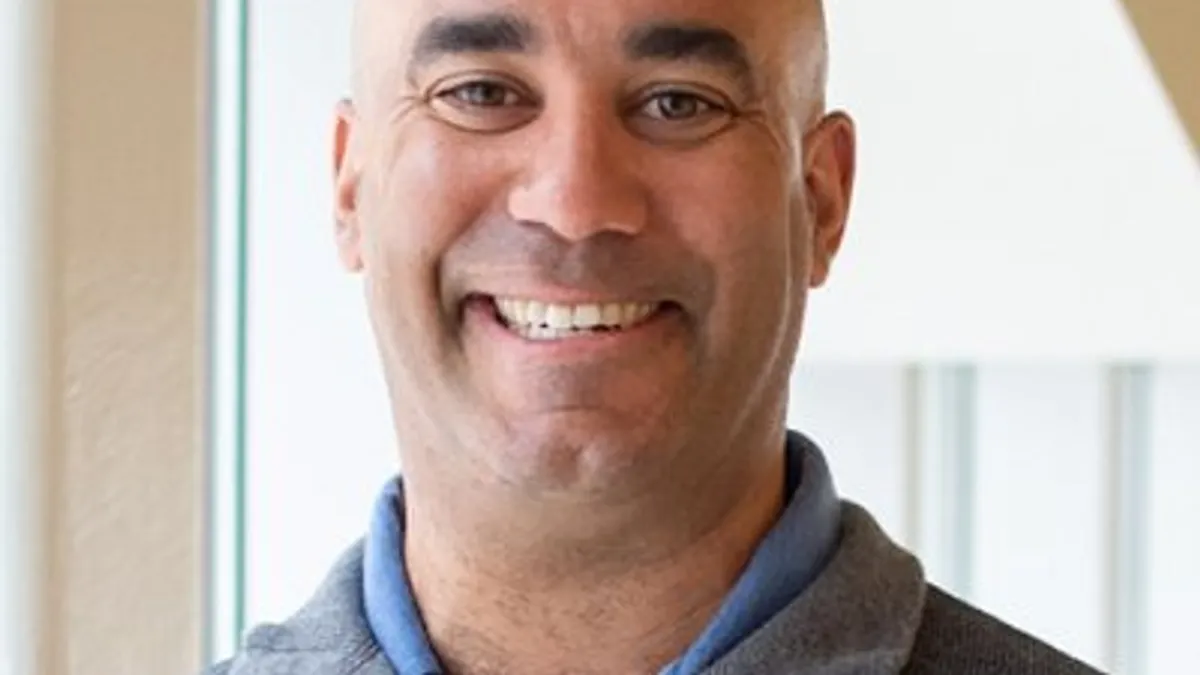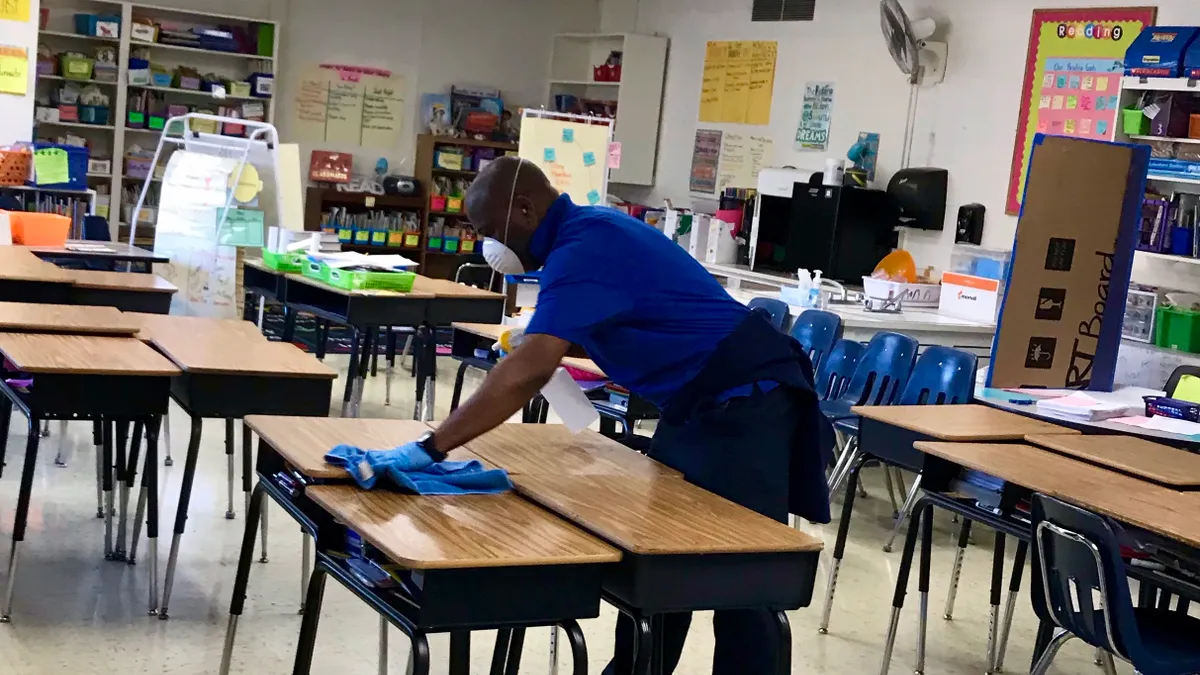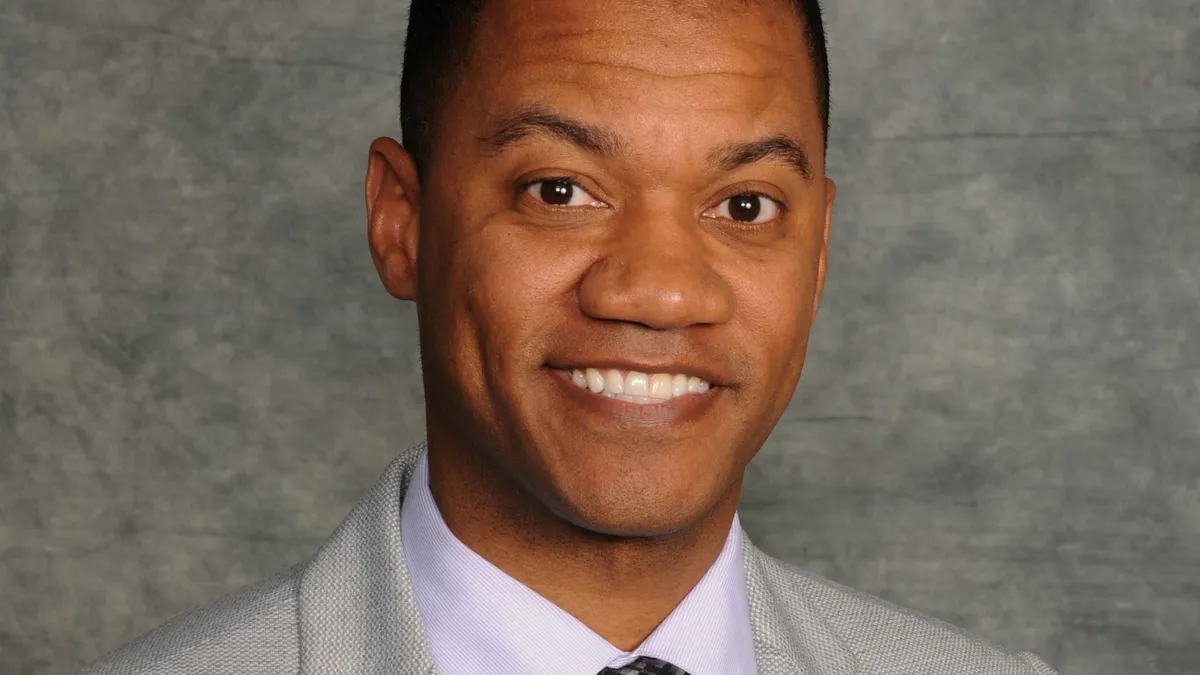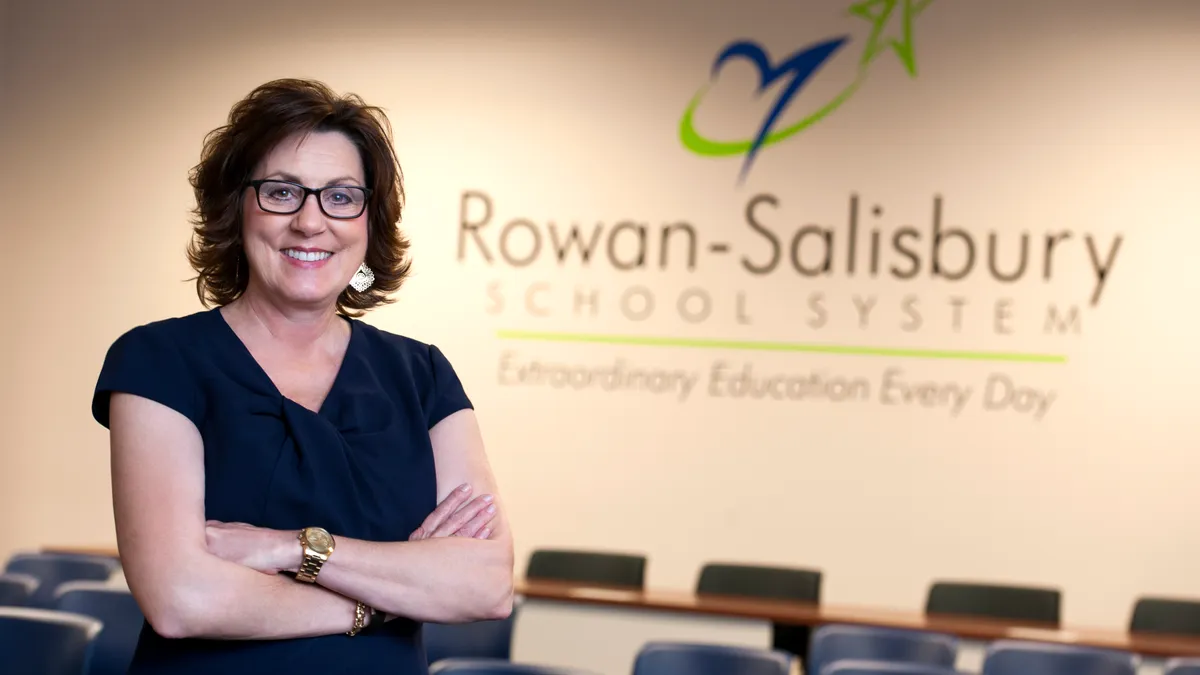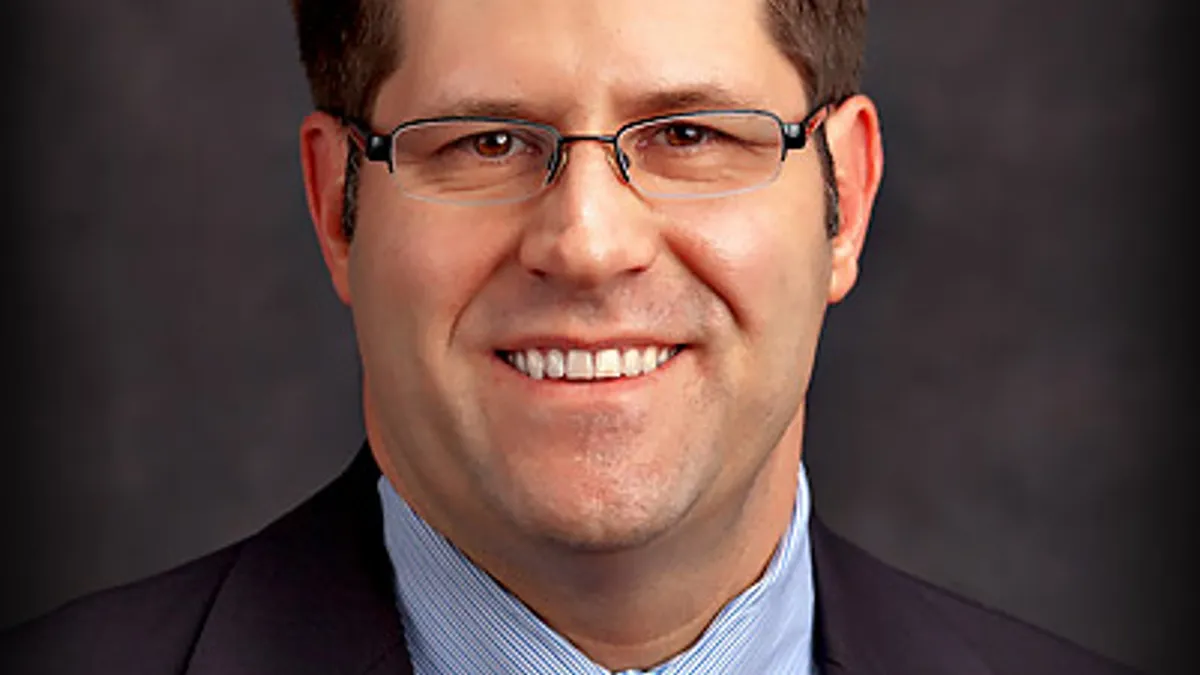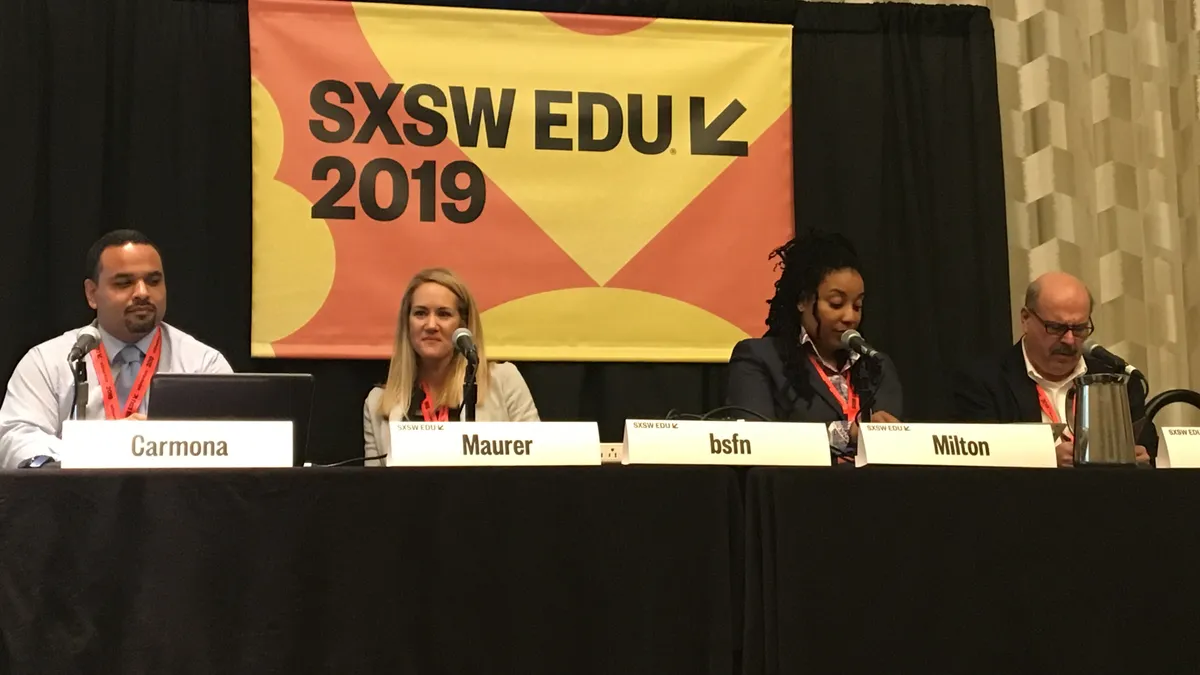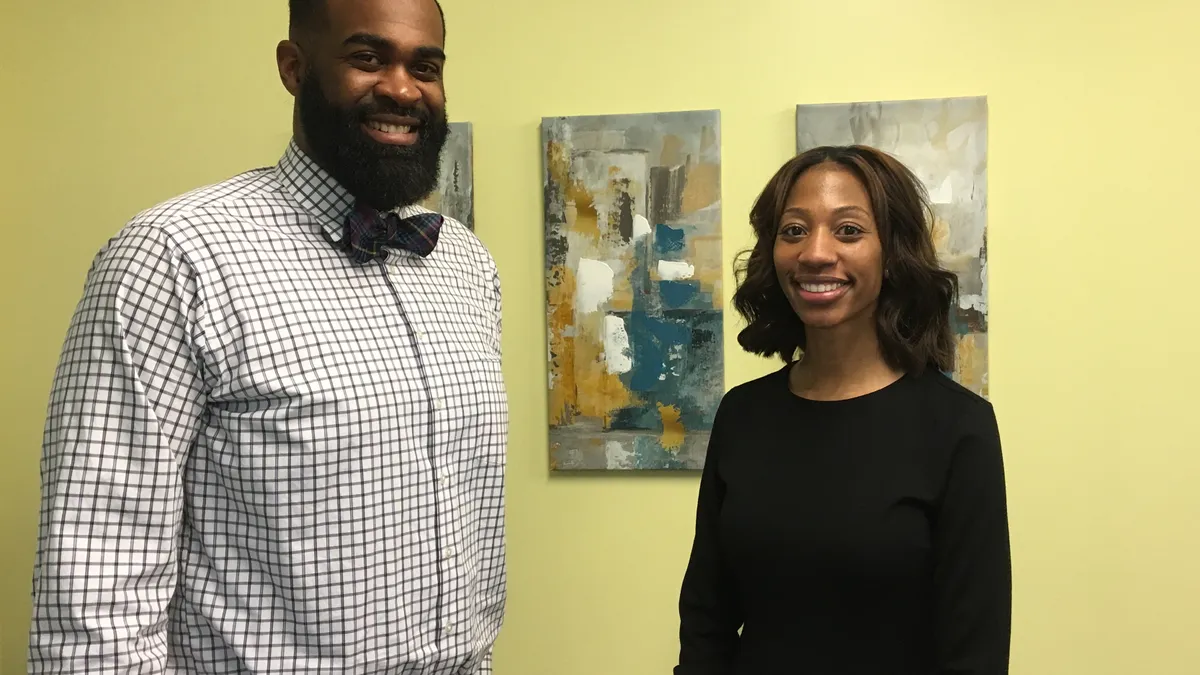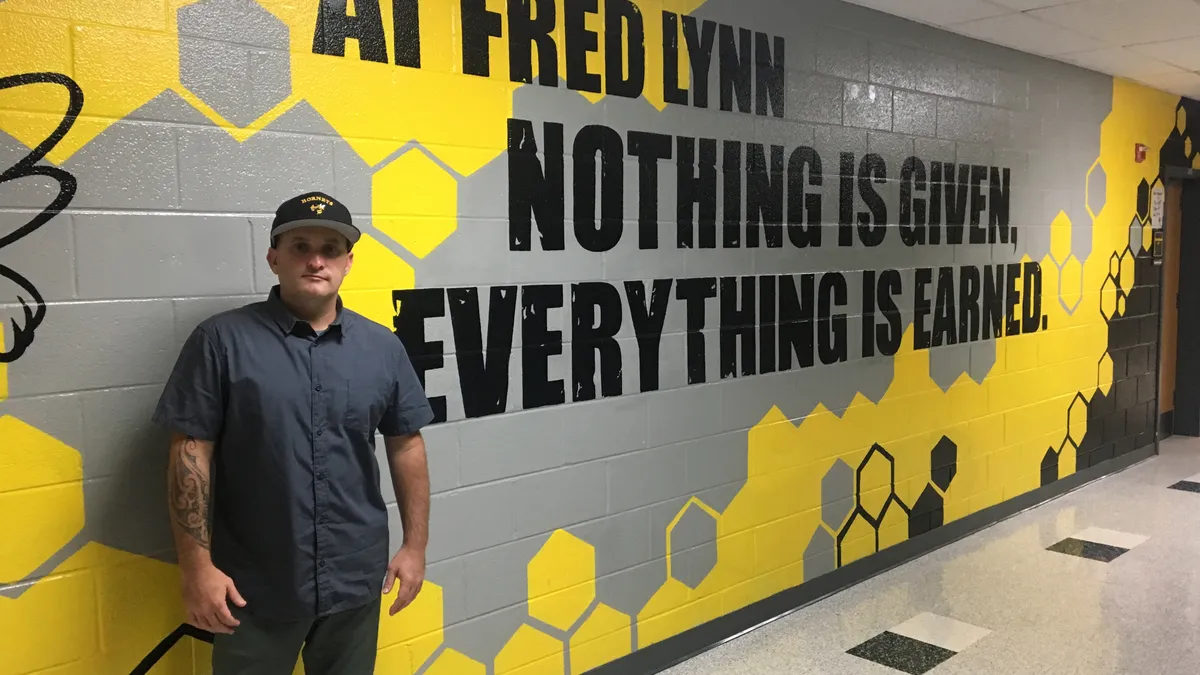Lessons In Leadership is an ongoing series in which K-12 principals and superintendents share their best practices as well as challenges overcome. For more installments, click here.
Turning around a school district is no small feat — especially when that district is the largest in Texas and eighth largest in the U.S. But Houston Independent School District Superintendent Mike Miles doesn’t shy away from bold, wholesale change.
The former U.S. Army Ranger and diplomat to Poland and Russia has spent three decades as an educator. In that time, he has led the Harrison School District in Colorado and the Dallas Independent School District, in addition to founding Third Future Schools, a nonprofit charter school operator he resigned from to take the job in Houston.
With his appointment last year to oversee Texas’ takeover of Houston schools, Miles has set out on an ambitious agenda to rethink the city’s school system from the ground up. We caught up with him to learn more about the progress he’s seeing so far and his philosophy on school turnarounds.
Editor’s Note: The following interview has been edited for brevity and clarity.
K-12 DIVE: One year into the state takeover of Houston ISD, where does progress stand and what would you like to see next?
MIKE MILES: You can measure progress on many indicators, but the biggest indicator — did we move student achievement results for kids — the answer is “yes,” incredibly so.
We went from 121 D- and F-rated campuses to 41 D- and F-rated campuses, and we went from 93 A- or B-rated campuses to 170 A- and B-rated campuses. We really moved the scale, and behind those numbers, of course, there was a lot of kids and a lot of teachers doing great work. Thousands more students can read at grade level today than they did a year ago.
The other thing we had some success on last year was we right-sized the budget. The budget was nearing the fiscal cliff — and that's the language the last administration used. ESSER dollars were not used properly. A lot of it went into recurring expenses.
It's a story you've probably heard across the country, and it made the budget really difficult to right-size. It meant a lot of cuts in central office positions, cuts to purchase services, etc. We avoided the fiscal cliff and kept the district in a financially sound position. We also had lots of different systems that were broken, and we're still working on that.
So what do we want to see for this year? Look, we're far from being out of the weeds just because we had one good year of academic progress. We started from a very low position. Houston — according to the Nation's Report Card, NAEP — is lower than the other large urban districts with regard to proficiency of students. The other large urban districts are below Texas as a whole with regard to proficiency, and Texas is just behind the national average — which is nothing to brag about, but they're just behind the national average with regard to proficiency.
One year does not a trend make. We've got to continue to raise proficiency, close the achievement gap, and then get kids ready for a year 2035 environment. That's what we have to do this year.
When you're coming into a state takeover or district turnaround, what is the first thing that you prioritize?
MILES: The preamble is that I believe the American public education system is broken. We as a group, as a profession — we're not closing the achievement gap in larger urban districts. The achievement gap has been the same or only narrowed a little bit in the last 20 years. And I think COVID erased that increase.
The biggest problem over the last decade or two, and the reason why we as a profession have not been able to do better by our kids, is this notion of incremental, piecemeal reform. I believe the answer to that is wholescale systemic reform. That's what we're doing in Houston — large-scale, comprehensive, far-reaching reforms done all at one time.
It's a lot of changes — any one of which would have some pushback and cause some change anxiety and require change management. We did wholescale systemic reform in 85 of the 274 schools. We have since expanded that to 130 of the 274 schools. Almost half the district is now undergoing wholescale systemic reform.
In its simplest form, wholescale systemic reform looks at six components and substantially changes some of the underlying principles.
We use a unique instructional model that combines grade-level instruction with scaffolds and a highly differentiated model of instruction.
The second is the quality of instruction. Instruction is key for us. We do a lot of on-the-job coaching. We do a lot of short spot observations and immediate feedback. We do a lot of training on what grade-level instruction looks like for principals and teachers and executive directors. We insist on that continuous improvement mindset.
The third thing is high-quality instructional materials. We have designed our own curriculum for the wholescale systemic reform. We call it NES, New Education System. For those 85, and now 130, [NES] schools, we have our own curriculum, which means we also provide the teacher with the PowerPoint, the quizzes — or what we call “demonstrations of learning” — the lesson objective, the differentiated assignments. They're tightly aligned with the standards, and they've been vetted.
Fourth is staffing. Our staffing model's a little bit different. We have teacher apprentices, we have learning coaches, we have smaller class sizes. And then we have just a lot of focus on ensuring that anybody who steps in the classroom, whether it's a teacher apprentice or learning coach, is prepared to teach well — even if the teacher is absent that day or goes on long-term maternity leave or something like that.
Then there's leadership. We have principal apprentices. We have a principal's academy of about 70 people who are learning to be principals, and they get paid just to learn how to be principals for that year. And then they become a principal or assistant principal at the end of that.
And then there's culture — and culture is not innovative. Culture is just something we actually do instead of just say. Culture is high accountability with lots of support, because accountability without support is just fear. But there’s lots of support, higher expectations and continuous improvement. All of those things we insist on, and we support.
How do you engage with the community during a takeover or turnaround, particularly when there are people who might be skeptical?
MILES: My mindset is always grace to the people who are already here, who were doing business in one way or operating in one way, and then a new administration comes in and changes things. That's understandable if there's opposition. There's also opposition when there's change. Change is hard.
The ship was sinking, and we needed to do bold things. And that's what we've been focused on.

Mike Miles
Superintendent, Houston Independent School District
It's our responsibility to explain these reforms and help them understand, but also listen and hear them out and try to modify things where we can. At the same time, we don't have time to form a whole bunch of committees just to right the ship. The ship was sinking, and we needed to do bold things. And that's what we've been focused on.
There have been lots of town hall meetings, community meetings, public comment at the board meetings, and lots of other attempts by us to try to explain what we're doing — whether it's social media, press availability, things like that.
Out of those wholescale reforms, are there any that are particularly more challenging when it comes to both implementing them and getting community buy-in?
MILES: We haven't moved to pay-for-performance yet, but that's going to happen. We've already announced that.
But just placing evaluations using instructional feedback data and achievement data to assess teachers — and also to move some teachers out of the district — has been particularly complex and needs a lot of discussion and explanation.
So I think that those two things — assessing principals and the pay-for-performance part of that, but using data for principals and then using data for teacher evals.


